|
9/19/2023 Intellectual Property, Knowledge Monopoly and the Rent Economy By: Prabir PurkayasthaRead NowNeoliberalism privatised the rewards but socialised the risks of the patents system. Image Courtesy: Left Word The twentieth century saw the emergence of public funded universities and technical institutions, while technology development was concentrated in the R&D laboratories of large corporations. The age of the lone inventor—Edison, Siemens, Westinghouse, Graham Bell—had ended with the nineteenth century.1 The twentieth century was more about industry-based R&D laboratories, where corporations gathered together leading scientists and technologists to create the technologies of the future. In this phase, capital was still expanding production. Even though finance capital was already dominant over productive capital, the major capitalist countries still had a strong manufacturing base. In this phase of development, science was regarded as a public good and its development was largely concentrated in the university system or publicly funded research institutions. Technology development was largely regarded as a private enterprise. Science was supposed to produce new knowledge, which could then be mined by technology to produce artefacts.2 The role of innovation was to convert ideas into artefacts. The system of intellectual property—patents and other rights—arose to provide protection to the useful ideas embodied in artefacts. From the beginning, patents also had a public purpose—the state-granted monopoly for a certain period was meant to ensure the eventual public disclosure of the invention: the quid pro quo being full public disclosure in lieu of a limited-term monopoly. The transformation of this system that had existed for several centuries came about as a result of two major changes in the production of knowledge. The first relates to the way in which, under the neo-liberal order, the university system of knowledge production has been transformed into a profit-making commercial enterprise.3 Secondly, the distinction between science and technology has blurred considerably and the two are more closely integrated than before. For example, an advance in genetics can almost seamlessly lead to an artefact—a drug, a diagnostic tool or a seed—that is both patentable and marketable. Similar is the case of innovations in the field of electronics and communications. Many disciplines of science and also research output in universities, are, in consequence, driven closer to the systems of production. The conversion of the university system into a system producing knowledge directly for commercial purposes has happened in tandem with the destruction of the R&D laboratories that were so much a part of the industrial landscape of the twentieth century. Finance capital controls university science, not just through ‘investment’ in R&D, but also the purchase of ‘knowledge’. Its monopoly is exercised through buying the patents that university research produces. This monopoly in turn allows finance capital to dominate over industrial capital. The end of the twentieth century revealed the rupture of finance capital and productive capital. Today, global capital operates far more as disembodied finance capital, controlling production at one end with its control over technology and markets at the other. In this phase, where capital increasingly lives off speculation and rent, there is also a marked separation of knowledge as capital from productive or physical capital—plant and machinery. Foxconn/Hon Hai Precision Industries manufactures Apple products but cannot claim a major share in the profits from their sale, since Apple holds the intellectual knowledge and property rights. Roughly, Apple gets 31 per cent of the profits from an iPhone sale, Foxconn less than two per cent. The transformation of capital to rent seeking, by using its monopoly over knowledge—patents, copyrights, industrial designs, etc.—characterises the current phase of capital. With this, the advanced capitalist countries have increasingly become rentier and ‘service’ economies. In essence, they dominate the world by virtue of controlling the global financial structure, new knowledge required for production, and distribution through retail and global brands. Even as universities are captured by capital and turned into what is termed as University Inc., the new knowledge they produce is still publicly funded.4 This is true alike of advanced capitalist countries and those like India. The direction of scientific research is dictated by private capital, which takes over any successful outcome, and yet this transformation of science did not come about through being privately funded. The cost of fundamental research is high and only a few of its research outputs may have immediate benefits in terms of advancing technology. This is where the state, whether in electronics or in genetics, takes care of the costs while the patents are handed over to private capital. A hallmark of the neo-liberal system is the socialisation of risk and privatisation of rewards. The understanding that science needs to be restored as an open and collaborative exercise has given birth to the commons movement. By a curious sleight of hand, capitalism sees the finite commons—the atmosphere and large water bodies such as lakes, rivers and oceans—as infinite, and demands the right to dump waste in these commons. Yet it regards knowledge, capable of being copied infinite number of times without loss, as finite and demands monopoly rights over it! Never before has society had the ability it does today to bring together different communities and resources in order to produce new knowledge. It is social, universal labour, and its private appropriation as intellectual property under capitalism stands in the way of liberating the enormous power of the collective to generate new knowledge and benefit people. Extracted with permission from Knowledge as Commons: Towards Inclusive Science and Technology by Prabir Purkayastha, first published by LeftWord, New Delhi, 2023. 1 Philo T. Farnsworth, the inventor of television, has been described as the last lone inventor. He fought against the corporate power of David Sarnoff, and RCA, the most powerful company in the business of broadcasting. It was a David versus Goliath battle. Evan I. Schwartz, The Last Lone Inventor: A Tale of Genius, Deceit, and the Birth of Television, Harper Collins, 2002. 2 I have dealt with the relationship between science and technology in more detail in the essay ‘Restoring Conceptual Independence to Technology’. See Chapter 5 in Section II of this book. 3 ‘Academic administrators increasingly refer to students as consumers and to education and research as products. They talk about branding and marketing and now spend more on lobbying in Washington than defence contractors do’. Jennifer Washburn, University, Inc.: The Corporate Corruption of Higher Education, Basic Books, 2005. Before the Bayh-Dole Act 1980, any invention or knowledge produced with public money had to remain in the public domain to be used by any individual or company. The universities have a vested interest in patenting—for example medicine—selling the rights to the private sector and generating either large one-time payments, or a stream of royalties or both. ‘This report shows that NIH funding contributed to published research associated with every one of the 210 new drugs approved by the Food and Drug Administration from 2010–2016’. Ekaterina Galkina Cleary, Jennifer M. Beierlein, Navleen Surjit Khanuja, Laura M. McNamee, Fred D. Ledley, ‘Contribution of NIH Funding to New Drug Approvals 2010–2016’ Proceedings of the National Academy of Sciences, Vol. 115, 10, pp. 2329–2334, 2018. https://doi.org/10.1073/pnas.1715368115 4 Washburn, University, Inc.. AuthorThis article was produced by News Click. Archives September 2023
0 Comments
9/19/2023 Pepe Escobar: Russia, North Korea Stage 'Strategic Coup' Against Western HegemonyRead Now
It will take ages to unpack the silos of information inbuilt in the Eastern Economic Forum in Vladivostok last week, coupled with the – armored - train-keeps-a-rollin’ conducted by North Korean leader Kim Jong-Un straddling every nook and cranny of Primorsky Krai.
The key themes all reflect the four main vectors of the New Great Game as it’s being played across the Global South: energy and energy resources; manufacturing and labor; market and trade rules; and logistics. But they go way beyond – exploring the subtle nuances of the current civilizational war.
So Vladivostok presented…
- A serious debate on the surge of anti-neocolonialism, presented for instance by the Myanmar delegation; geostrategically, Burma/Myanmar, as a privileged gateway to Southeast Asia and the Indian Ocean, was always an object of Divide and Rule games, with the British Empire only caring about extracting natural resources. This is what “scientific colonialism” is all about. - A serious debate on the concept of the civilization-state, as already developed by Chinese and Russian scholars, applied to China, Russia, India and Iran. - The interconnection of transport/connectivity corridors. That includes the upgrading of the Trans-Siberian in the near future; a boost for the Trans-Baikal – the world’s busiest rail line – connecting the Urals to the Far East; a renewed drive for the Northern Sea Route (last month two Russian oil tankers sailed from Murmansk across the Arctic to China for the first time; ten days shorter than the Suez Canal route); and the coming of the Chennai-Vladivostok channel, which will be connected to the International North South Transportation Corridor (INTSC). - The common Eurasia payment system, discussed in detail in one of the key panels: Greater Eurasia: Drivers for the Formation of an Alternative International and Monetary and Financial System. The immense challenge to set up a new payment settlement currency against “toxic currencies” instrumentalized amid relentless Hybrid War. In another panel, the possibility of a timely BRICS and EAEU joint summit next year has been evoked.
All Aboard The Kim Train
The genesis of Kim Jong Un’s train journey to the Russian Far East - coinciding with the Forum, no less - is a masterful strategic coup that was in the works since 2014, at the time of the Maidan. Xi Jinping was still in the beginning of his first mandate; he had announced the New Silk Road exactly ten years ago, first in Astana and then in Jakarta. The DPRK was not supposed to be integrated into this vast pan-Eurasian project that would soon become China’s overarching foreign policy concept. The DPRK then was on a roll against the Hegemon, under Obama, and Beijing was no more than a worried spectator. Moscow, of course, was always focused on peace in the Korean Peninsula, especially because its geopolitical priorities in 2014 were Donbass and Syria/Iran. The last thing Moscow could afford was a war in Asia-Pacific. Putin’s strategy was to send Defense Minister Shoigu to Beijing and Islamabad to calm it all down. Pakistan at the time was helping Pyongyang to weaponize their nuclear arsenal. Simultaneously, Putin himself approached Kim, offering serious guarantees: we’ve got your back if ever there is an attack by the Hegemon supported by Seoul. Even better: Putin got Xi himself to double down on the guarantees.
The categorical imperative was simple: as long as Pyongyang did not start any trouble, Moscow and Beijing would be by its side.
A sort of calm before any possible storm then set in – even if Pyongyang continued to test their missiles. So over the years, Kim’s mindset changed; he became convinced that Russia and China were his allies. The DPRK's geoeconomic integration into Eurasia was seriously discussed in previous, pre-Covid editions of the Eastern Economic Forum in Vladivostok. That included the tantalizing possibility of a Trans-Korean Railway linking both North and South to the Far East, Siberia and the wider Eurasia. So Kim started to see the Big Eurasia Picture, and how Pyongyang could finally start to benefit geoeconomically from a closer association with the EAEU, SCO and BRI. This is how strategic diplomacy works: you invest during a decade, and then all the pieces fall into place when an armored train keeps-a-rollin’ across Primorsky Krai. From the perspective of a Russia-China-DPRK triangle, it’s no wonder the collective West has been reduced to the status of crying toddlers in a sandbox. The Hegemon’s puny US-Japan-South Korea axis to counter, simultaneously, China and the DPRK, is a joke compared to the DPRK’s brand-new role as a sort of Asia-Pacific Military District, adjacent to their immediate neighbor, the Russian Far East. There will be military integration, of course, in missile defense, radars, ports, airfields. But the key vector, along the way, will be geoeconomic integration. Sanctions from now on are meaningless. No one in 2014 was seeing this all play out, except for a very sharp analyst who coined the precious Double Helix concept to define the still evolving, at the time, Russia-China comprehensive strategic partnership. The Double Helix perfectly explains the full-spectrum geostrategic symbiosis between two civilization-states which happen to be former empires but since the middle of the previous decade willfully decided to accelerate their mutual drive to lead the Global Majority in the path towards multipolarity.
The Road to Polycentricity
All of the above finely coalesced in the last panel in Vladivostok - informally known even to the Japanese and Koreans as “the European capital of Asia”, in the heart of Asia-Pacific. The debate was on a “global alternative to Western dominance”. The West, incidentally, was absolutely invisible at the Forum. Foreign Ministry spokeswoman Maria Zakharova summed it all up: the recent G20 and BRICS summits had set the stage for President Putin’s remarkable address to the plenary session in Vladivostok. Zakharova alluded to “fantastic strategic patience”. That applies to the whole “pivot to Asia” policy and boosting the development of the Far East, initiated in 2012, and now implying a full turn of the Russian economy towards Asia-Pacific geoeconomics. But at the same time, that also applies to integrating the DPRK into the geoeconomic Eurasian high-speed train.
Zakharova stressed how Russia “never supported isolation”; always “advocated partnership” – which the Forum graphically displayed for dozens of Global South delegations. And now, under the conditions of a “dirty fight, unlawful and with no rules”, a serious stand-off, the Russian position remains easily recognizable for the Global Majority: “Not to accept dictatorship”.
Andrey Denisov, Ambassador Extraordinary and Plenipotentiary, made a point to mention crack political analyst Sergey Karaganov as one of the key drivers of the concept of Greater Eurasia. More than “multipolarity”, Denisov argued, what is being built is “polycentricity”: a series of concentric circles, involving plenty of dialogue partners. Former Austrian Foreign Minister Karin Kneissl now heads a new think tank in St. Petersburg, G.O.R.K.I. As a European who ended up being ostracized by her own peers under the blatant toxicity of cancel culture, she stressed how freedom and rule of law have disappeared in Europe. Kneissl referred to the Battle of Actium as the key passage of power from the Eastern Mediterranean to the Western Mediterranean: “That’s when the dominance of the West started”, complete with all the mythology built around the Roman Empire which obsesses the Anglosphere to this day. With sanctions dementia and irrational Russophobia installed at the head of the EU and the European Commission, Kneissl stressed, the notion that “treaties must be preserved” disappeared while “the rule of law has been destroyed. This is the worst that could have happened to Europe”. Alexander Dugin, online, called for understanding “the depth of Western domination”, expressed via hyper-liberalism. And he proposed a key breakthrough: the Western modus operandi should become an object of research, in a sort of Gramscian attempt to define what distinguishes Western ideology, and thus act towards “deep decolonization”.
In a sense this is what is being attempted by current actors in West Africa – Mali, Burkina Faso, Niger. That poses the question of who is a real Sovereign in a new world. The West, argues Dugin, is a Total Sovereign; Russia, as a nuclear power and prime military power defined as an existential threat by the Hegemon, is also a Sovereign.
Then there’s China, India, Iran, Turkey. These are key poles in a dialogue of civilizations; actually what was proposed by former Iranian President Khatami way back in the late 1990s, and then dismissed by the Hegemon. Dugin remarked how China “has moved far away in building a civilizational state”. Russia, Iran, India are not far behind. These will be the essential actors steering the world towards polycentricity. AuthorPepe Escobar
This article was produced by Sputnik.
ArchivesSeptember 2023 9/19/2023 Elliot Abrams Was a CIA Agent According to Daughter of CIA-Mafia Liaison By: Jeremy KuzmarovRead NowAppointment of Abrams to Public Diplomacy Commission Shows President Biden’s Close Ties to the CIAIn September 1998, Desiree A. Ferdinand gave a sworn deposition, in a case filed with the U.S. District Court of Massachusetts, detailing the career of her father, Colonel Albert V. Carone, an army intelligence officer in World War II who she claimed was a CIA liaison with organized crime. Ferdinand testified in a civil suit brought against the CIA and then-Vice President and former CIA Director George H. W. Bush (and others) by Army Private William M. Tyree, Jr., who claimed he was involved in a drug-smuggling operation from Colombia and was then framed for the murder of his wife.
Because of Abrams’ involvement in the Iran-Contra scandal, his nomination by Biden garnered criticism even on CNN. Journalist Jefferson Morley characterized Abrams as the equivalent of neo-conservative royalty—his wife was the daughter of Norman Podhoretz, the editor of Commentary magazine, a mouthpiece for hawkish neo-conservatives. In 1991, Abrams pleaded guilty for withholding information about arms smuggling to the Contras, earning him two misdemeanor counts, two years’ probation and 100 hours of community service—though his crimes were later pardoned by President George H. W. Bush. Norman Podhoretz [Source: labiancatorrdiecthelion.wordpress.com] The secret Iran-Contra operation, which took place during Abrams’ time as an assistant secretary of state in the Reagan administration, involved funding anti-communist rebels in Nicaragua known as the Contras, using the proceeds from weapon sales to Iran despite the congressional ban on such funding contained in the Boland Amendment. To bypass the Boland Amendment, Abrams took payments from the Sultan of Brunei, a petroleum potentate from South Asia, and passed them to Contra leaders who used terrorist methods in trying to sabotage Nicaragua’s socialist Sandinista government, which won legitimate elections in 1984. Ronald Reagan meeting with Contra leaders. Oliver North stands behind Reagan in the background. [Source: dougmichaeltruth.com] Nicknamed “Contra commander-in-chief,” Abrams stated in 1985 that the purpose of the illegal aid to the Contras was “to permit people who are fighting on our side to use more violence.” Abrams being sworn in for his testimony at the televised Iran-Contra hearings. [Source: jacobin.com] To further help fund the Contras, Abrams protected a drug-trafficking operation headed by Honduran General José Bueso Rosa, a CIA asset who ran an infamous death squad (Battalion 316), which captured, tortured and executed some 200 suspected leftists. Additionally, Abrams helped cover up U.S. support for large-scale war crimes in Guatemala, and for the December 1981 El Mozote massacre in El Salvador, where the U.S.-trained Atlácatl Battalion massacred more than 800 civilians—the largest mass killing in Latin American history.[2] In a July 1982 certification hearing before the Senate Foreign Relations Committee, Abrams downplayed the El Mozote massacre, describing it as “an incident which is at least being significantly misused, at the very best, by the [leftist] guerrillas.” A decade later, Abrams told The Washington Post that “the administration’s record in El Salvador is one of fabulous achievement”; he repeated the same thing during a confirmation hearing in 2019 when he was grilled by Ilhan Omar (D-MN). Memorial to the victims of the El Mozote massacre in El Salvador which Abrams helped to cover up. [Source: jacobin.com] Doberman Pinscher School of Diplomacy True to form, as a member of the National Security Council under George W. Bush, Abrams supported a coup attempt directed against Venezuela’s leftist leader Hugo Chávez in 2002. Then in 2006, he helped precipitate a civil war between Hamas and Fatah when the Bush administration would not accept Hamas’s victory in elections in Gaza. Writing in CounterPunch, former CIA analyst Melvin Goodman called Abrams a “Cold War functionary remnant from a sad era.” Branko Marcetic in Jacobin called him “one of America’s worst living human rights abusers,” while career foreign service officer Frank McNeil said that Abrams practices the “Doberman Pinscher school of diplomacy.” Biden’s Commitment to the CIA The latter would be consistent with Abrams’ background in the CIA, an agency with a history of subverting diplomacy and fomenting violent coups, civil wars and regime change. Biden’s appointment of the old CIA veteran to a prestigious commission shows Biden’s commitment not only to neo-conservatism but also to securing the interests of the CIA. This commitment was seen last year when Biden refused to declassify 5,000 critical documents on the assassination of JFK, which researchers believe incriminate the CIA. [Source: freedomfightersforamerica.com] Biden has also bolstered funding for the CIA’s propaganda arm, the National Endowment for Democracy (NED), and helped turn Ukraine into a CIA playground, using an energy company that placed his son on its board as a front to funnel weapons to right-wing and neo-Nazi-dominated militias that have terrorized the people of eastern Ukraine since 2014. Biden’s support for the CIA during his presidency is not surprising given that, when he was first elected to the U.S. Senate as a “29-year-old kid” in 1972, Biden was mentored by W. Averell Harriman, the former U.S. ambassador to the Soviet Union who supported CIA covert operations throughout his long diplomatic career. In 1981, as a member of the Senate Judiciary Subcommittee on Security and Terrorism, Biden advocated locking up CIA whistleblower Philip Agee, whose 1975 book Inside the Company: CIA Diary identified some 250 officers, front companies and foreign agents working for the United States. Biden also collaborated with CIA Director William J. Casey in 1980 in promoting legislation that banned graymailing, a tactic used in leaker trials in which classified documents are requested by the defense during discovery to pressure the government into dropping its case.[3] Joe Biden in 1981. [Source: nytimes.com] In his memoir On the Run (1987), Philip Agee wrote that “Joseph Biden, like [Barry] Goldwater [conservative Senator from Arizona and 1964 presidential candidate and] a member of the Senate Intelligence Committee, called for a new law to stop my revelations by criminalizing the exposure of undercover intelligence officers.” [Source: ourhiddenhistory.org] The Senate Select Committee on Intelligence was supposed to provide oversight of CIA covert operations but in reality came to function as a rubber stamp. Among other things, it failed to (1) adequately probe into the CIA’s assassination of Frank Olson, a CIA biochemist who helped run germ warfare experiments at a secret army laboratory in Fort Detrick, Maryland; (2) acquiesced to the CIA’s lies about its subversion in Angola; and (3) covered up the CIA’s support for narco-traffickers in Latin America and Afghanistan. In the early 1980s, after complaints by a Delaware citizen, Biden launched an investigation into Summit Aviation Corp., a Middletown, Delaware, company owned by Richard “Kip” DuPont that ferried bombs and guns to the Nicaraguan Contras in support of CIA operations, but never released the findings.[4] This exemplified Biden’s participation in the cover-up of the Iran-Contra scandal alongside Elliott Abrams and Biden’s function as a “Company Man”—which continues to this day.
AuthorJeremy Kuzmarov is Managing Editor of CovertAction Magazine. He is the author of four books on U.S. foreign policy, including Obama’s Unending Wars (Clarity Press, 2019) and The Russians Are Coming, Again, with John Marciano (Monthly Review Press, 2018). He can be reached at: jkuzmarov2@gmail.com. This article was produced by CovertAction Magazine. Archives September 2023 9/12/2023 What if There Had Been No Coup in Chile in 1973?: The Thirty-Sixth Newsletter (2023) By: Vijay PrashadRead NowGracia Barrios (Chile), Multitud III (‘Multitude III’), 1972. Dear friends, Greetings from the desk of Tricontinental: Institute for Social Research. Imagine this scenario. On 11 September 1973, the reactionary sections of the Chilean army, led by General Augusto Pinochet and given a green light by the US government, did not leave their barracks. President Salvador Allende, who led the Popular Unity government, went to his office in La Moneda in Santiago to announce a plebiscite on his government and to ask for the resignation of several senior generals. Then, Allende continued his fight to bring down inflation and to realise his government’s programme to advance the socialist agenda in Chile. Until the moment when the Chilean Army descended upon La Moneda in 1973, Allende and the Popular Unity government were in a pitched fight to defend Chile’s sovereignty, particularly over its copper resources and its land as they sought to raise sufficient funds to eradicate hunger and illiteracy and to produce innovative means to deliver health care and housing. In the Popular Unity programme (1970), the Allende government founded its charter: The social aspirations of the Chilean people are legitimate and possible to satisfy. They want, for example, dignified housing without readjustments that exhaust their income; schools and universities for their children; sufficient wages; an end once and for all to high prices; stable work; timely medical attention; public lighting; sewers; potable water; paved streets and sidewalks; a just and operable social security system without privileges and without starvation-level pensions; telephones; police; children’s playgrounds; recreation areas; and popular vacationing and sea resorts. The satisfaction of these just desires of the people – which, in truth, are rights that society must recognise – will be a preoccupation of high priority for the popular government. Realising the ‘just desires of the people’ – a laudable objective – was possible amidst the public’s optimism for the Popular Unity government. Allende’s administration adopted a model that decentralised the government and mobilised the people to attain their own ‘just desires’. Had this model not been interrupted, the depositors in the government’s social security institutions would have remained on directive councils with oversight of these funds. Organisations of slum dwellers would have continued to inspect the operations of the housing department tasked with building quality housing for the working class. Old democratic structures would have continued to strengthen as the government used new technologies (such as Project Cybersyn) to create a distributed decision system. ‘It is not only about these examples’, the programme noted, ‘but about a new understanding in which the people participate in state institutions in a real and efficient way’. Roberto Matta (Chile), Hagámosnos la guerrilla interior para parir un hombre nuevo (‘Let’s Fight the Guerilla War Within Ourselves to Give Birth to a New Man’), 1970. As Chile’s people, led by the Popular Unity government, took control over their economic and political lives and worked hard to improve their social and cultural worlds, they sent a flare into the sky announcing the great possibilities of socialism. Their advances mirrored those that had been attained in several other projects, such as in Cuba, and boosted the confidence of people across the Third World to test their own possibilities. The eradication of poverty and the creation of housing for every family was an inspiration for Latin America. Had the Popular Unity project not been cut short, it very well might have encouraged other left projects to demand the satisfaction of just desires in a world where it was possible to attain them. No longer would we live in a world of scarcity, which impedes the realisation of these desires. No Chicago Boys would have arrived with their noxious neoliberal agenda to experiment in the laboratory of a military regime. Popular mobilisations would have exposed the illegitimate desire of the capitalist class to impose austerity on the people in the name of economic growth. As Allende’s government expanded its agenda, driven by a decentralised government and by popular mobilisation, the ‘just desires’ of the people might have eclipsed the narrow greed of capitalism. If there had been no coup in Chile, there might not have been coups in Peru (1975) and Argentina (1976). Without these coups, perhaps the military dictatorships in Bolivia, Brazil, and Paraguay would have withdrawn in the face of popular agitation, inspired by Chile’s example. Perhaps, in this context, the close relationship between Chile’s Salvador Allende and Cuba’s Fidel Castro would have broken Washington’s illegal blockade of revolutionary Cuba. Perhaps the promises made at the UN Conference on Trade and Development (UNCTAD) meeting in Santiago in 1972 might have been realised, among them the enactment of a robust New International Economic Order (NIEO) in 1974 that would have set aside the imperial privileges of the Dollar-Wall Street complex and its attendant agencies, the International Monetary Fund (IMF) and the World Bank. Perhaps the just economic order that was being put in place in Chile would have been expanded to the world. But the coup did happen. The military dictatorship killed, disappeared, and sent into exile hundreds of thousands of people, setting in motion a dynamic of repression that has been difficult for Chile to reverse despite the return to democracy in 1990. From being a laboratory for socialism, Chile – under the tight grip of the military – became a laboratory for neoliberalism. Despite its relatively small population of roughly ten million (a tenth of the size of Brazil’s population), the coup in Chile in 1973 had a global impact. At that time, the coup was not just seen as a coup against the Popular Unity government of Salvador Allende, but as a coup against the Third World. That is precisely the theme of our latest dossier, The Coup Against the Third World: Chile, 1973, produced in collaboration with Instituto de Ciencias Alejandro Lipschutz Centro de Pensamiento e Investigación Social y Política (ICAL). ‘The coup against Allende’s government’, we write, ‘took place not only against its own policy of the nationalisation of copper, but also because Allende had offered leadership and an example to other developing countries that sought to implement the NIEO principles’. At the third session of UNCTAD in Santiago (1972), Allende said that the mission of the conference was to replace ‘an obsolete and radically unjust economic and trade order with an equitable one that is based on a new concept of man and human dignity and to reformulate an international division of labour that is intolerable for the less advanced countries and that obstructs their progress while favouring only the affluent nations’. This was exactly the dynamic that was derailed by the coup in Chile as well as by other manoeuvres of the imperialist bloc. Instead of promoting an order ‘based on a new concept of man and human dignity’, these manoeuvres resulted in the murder of hundreds of thousands of people’s advocates (among them leftists, trade unionists, peasant leaders, environmental justice campaigners, and women’s rights activists) and prolonged the destiny of hunger and illiteracy, poor housing and medical care, and the general orientation of a culture of despair and toxicity. Please read our dossier and share it. These dossiers – produced once a month – are a product of collaboration and hard work, a synthesis of how we, as an institute rooted in popular movements, see key events of our history. The art for this dossier comes from the Salvador Allende Solidarity Museum, which preserved art from the Popular Unity period and from the struggle against the coup. We are grateful to them, and to ICAL, for our collaborations based on solidarity and against the neoliberal ethic of parochial greed. Two weeks before the fiftieth anniversary of the coup in Chile, Guillermo Teillier, the president of the Communist Party of Chile (PC), died. At his funeral, the party’s general secretary Lautaro Carmona Soto described how Teillier – with the coup’s cordite still in the air – went to work in Valdivia to protect and then build the party as part of the broader resistance to the coup regime. In 1974, Teillier was arrested in Santiago and subsequently held and tortured for two years in the Academia de Guerra Aérea. For another year and a half, Tellier was held in concentration camps in Ritoque, Puchuncaví, and Tres Álamos. Released in 1976, he went into hiding and continued to build the party back to its fighting strength, joined the following year by PC leader Gladys Marín. This was dangerous work, made even more dangerous when Tellier took over as the leader of the party’s military commission, which managed the aid sent from Cuba to Chile and oversaw the creation and operations of the Manuel Rodríquez Patriotic Front (FPMR), the PC’s armed wing. Though attempts to assassinate Pinochet failed, broader work to build the movement for democracy succeeded. It is the bravery and sacrifice of people such as Tellier, Marín, and countless – and often nameless – others, that brought the dictatorship of Pinochet and the Chicago Boys to an end in 1990. The 1973 coup in Chile destroyed lives and suspended a process of great promise. Today, that promise must be revived. Warmly, Vijay AuthorVijay Prashad is an Indian historian, editor, and journalist. He is the chief editor of LeftWord Books and the director of Tricontinental: Institute for Social Research. He is a senior non-resident fellow at Chongyang Institute for Financial Studies, Renmin University of China. He has written more than 20 books, including "The Darker Nations" and "The Poorer Nations." His latest book is "Washington Bullets," with an introduction by Evo Morales Ayma. This article was produced by triContinental. Archives September 2023 The declaration omitted the use of the word aggression in the context of the Ukraine war, which had been a major point of contention. It recognized that the G20 is not the platform to resolve geopolitical and security issues while acknowledging their impact on the global economy The 18th Summit of G20 (Group of 20) concluded in New Delhi with the adoption of a joint declaration on Sunday, September 10. The declaration reiterated the G20’s commitment to UN Sustainable Development Goals and raised the need to reform global decision-making with the inclusion of more voices from the Global South. The two day meeting of world’s top economies concluded with Indian Prime Ninister Narendra Modi handing over the presidency to Brazil which will host the summit next year. The New Delhi summit with the theme “Vasudhaiva Kutumbakam” or “One Earth, One Family, One Future” invited the African Union (AU) as its 21st member with its chairperson Azali Assoumani joining the proceedings. The AU represents 55 nations on the continent with a population of around 1.4 billion and a combined nominal GDP of USD 3 trillion. The leaders of G20 member countries and heads of international organizations addressed the summit gathering as it closed. Brazilian President Luiz Inácio Lula da Silva, speaking at the end of the summit, noted that the world is still witnessing poverty, hunger, and concentration of wealth. He also emphasized the need to address the issue of rising inequality in all spheres of life ranging from health, education, food, gender, race, and representation. Leaders’ Declaration: Global South pushes its agenda Host nation India was able to pull together all the participants to agree to the New Delhi declaration, despite earlier speculation that the war in Ukraine may play a spoiler. Russian foreign minister, Sergey Lavrov, who attended the summit instead of president Vladimir Putin, praised New Delhi for preventing the West from pushing its agenda and “politicizing” the forum at the cost of the Global South on many issues including the war in Ukraine. The declaration omitted the use of the word aggression in the context of the Ukraine war, which had been a major point of contention. The declaration reiterated that the G20 is the “premium forum for international economic cooperation” and not “the platform to resolve geopolitical and security issues” while acknowledging the impact of these issues on the economy. The attempt by the West to use the G20 platform to push its agenda on geopolitical issues has often been criticized by some members of the G20. The declaration also urged the countries to adhere to their commitments under the UN charter and maintain the territorial integrity of all countries. It also acknowledged that the war in Ukraine has had a massive global economic impact particularly for the least developed countries which are still trying to recover from the impact of COVID-19. It called for the revival of the Black Sea Grain deal and food grain and fertilizer exports from Russia and Ukraine as it is necessary to meet the demands from developing countries. Apart from reiterating the long-standing view of the developing countries about immediate reforms in the UN system, the declaration also voiced the need for greater representation of developing and poor countries in global economic decision-making to create a multilateral world reflecting the changing realities. It noted that a large number of developing countries have been facing debt vulnerabilities which need urgent attention. It proposes immediate reforms in the global financial institutions such as the International Monetary Fund (IMF) and establishment of an efficient multilateral development bank (MDB) to address issues related to democratic disbursal of loans. Noting that global economic growth is slower than expected and remains uneven, it underlines that all structural issues need to be resolved to address them. The declaration reiterated the significance of the World Trade Organization (WTO) as a multilateral forum and underscored that a fully and well-functioning dispute settlement system accessible to all members by 2024 must be created under it. Sustainable development with multilateralism and reforms in global governance Noting that “no country should have to choose between fighting poverty and fighting for our planet” the declaration pressed for greater cooperation to tackle the issues related to climate change and to ensure “sustainable, inclusive and just transitions” in the world. The declaration underlined the need to have increased efforts and financing to achieve the Paris Agreement to tackle the rise in global temperature and other climate issues. The G20 agreed to take steps to limit the rise of temperature to 1.5 degree Celsius by 2030 but rejected any push to have a time-bound phasing of fossil fuels as demanded by some countries and the UN earlier. The declaration talks about member countries taking efforts to restore at least 30% of the destroyed ecosystem by 2030 and at least 50% reduction of land degradation by 2040. It reiterated the G20 commitments to the UN Sustainable Development Goals (SDGs). Noting that only 12% of the SDGS are on track, the group declared that attempts need to be made to achieve time-bound targets and increased financing from all sources for the same. It noted the structural constraints which prevented developing countries from catching up with the West and focused on the needs to manage gaps in skills, wages, social security of the workers particularly in the gig economies. The declaration underlined the need to increase the role of women in economic decision-making. Archives September 2023 9/12/2023 Haiti, plunged into cycles of humanitarian crisis, rejects the possibility of new foreign intervention. By: Monyse RavenaRead NowMovements propose transitional government and cooperation with the Global South to rebuild the country Brasil de Fato spent seven days in Haiti at the invitation of popular organizations and movements. During the visit, BdF spoke to over 20 human rights organizations and all were unanimous in stating: the escalation of violence in the Caribbean country is stimulated by agents outside the island, and will probably be the justification for a new military intervention—rejected by the country’s civil society—led by foreign forces and sanctioned by the United Nations (UN). Another common criticism from activists is the international press coverage of the country. Exuma Emmanuel, a communicator for Radio Resistance and the Haitian People’s News Agency, a community and popular web radio based in Port-au-Prince, is incisive, “The kind of international coverage given to Haiti has many negative effects for those who live here” he says. “One of which is to sell the image that it is one of the worst places in the world to live, and this also has an effect on Haitians living outside the country.” “Outside the country, Haitians are afraid to present themselves as Haitians. There are other political effects on Haiti, since independence, negative news has formed an image,” he adds. Camille Chalmers, economist, professor and representative of the Platform for Alternative Development in Haiti (PAPDA) asks, “How do people talk about the crisis in Haiti?” “The dominant discourse in the international press is always about wars, the need for humanitarian aid,” she says. “This discourse has been going on since the 19th century because the imperial powers never accepted Haitian independence. The country helped in many independences and the [other] countries were afraid of the Haitian revolution.” Camille also highlights the permanence and originality of the Haitian popular movement and its anti-imperialist consciousness. Increased violence and armed groups The situation in the country is complex, with an increase in violence driven by armed groups that now control more than 50% of the territory, as confirmed by the organizations. The most critical situation is in the capital, Port-au-Prince. Armed groups control several popular neighborhoods, often involving murders and kidnappings. According to Exuma Emmanuel, “the violence that has been encouraged wants to impose a new occupying force on the country.” “The weapons used by the armed groups in the working class neighborhoods come from the United States. The Haitian people are not just desperate, they are fighting,” says Emmanuel, who explains that the gangs control strategic areas, creating a climate of terror and preventing people from organizing themselves. According to a United Nations report on the situation in Haiti, violence intensified in 2023 and the number of murders recorded in the country increased by 21% this year, from 673 in the last quarter of 2022 to 815 between January 1 and March 31. The number of kidnappings rose by 63% in the same period, from 391 to 637. Cases of rape of women and girls are also among the main complaints of the organizations heard by Brasil de Fato. A report by Amnesty International, presented at the beginning of April, points out that 40% of the country’s population is in a food emergency, which corresponds to five million people going hungry. According to the UN, the Haitian authorities recorded 1,014 kidnappings in the country between January and June this year. Economic chaos Haiti has the third highest inflation rate among Latin American countries (behind Argentina and Venezuela), at around 30%, and a volatile exchange rate. Fuel prices have risen by 260% in two years and the country is facing a new migration crisis with a flight of skilled labor. The majority of the population has no access to drinking water, medical care or adequate housing. For Radio Resistance coordinator Reyneld Sanon, the international community is backing a “criminal government.” “Everything they do is to justify Haiti as a chaotic entity,” he says. Since the assassination of Jovenel Moïse in July 2021, the presidency has been vacant and there are no plans for new elections. After the president’s death, Ariel Henry was appointed prime minister. Popular organizations claim that his appointment was made through direct interference by the Core Group, made up of the embassies of Germany, Brazil, Spain, the USA, France, Canada, the European Union and the special representative of the Organization of American States. At the moment, there is no functioning parliament or higher courts in the country. “Montana Accord" A group of popular movements and human rights organizations are proposing the establishment of a transitional government as a way out of the crisis. The proposals have been systematized in the “Montana Accord,” which is opposed by the Core Group. The agreement was proposed in August 2021 by the Commission for the Search for a Haitian Solution to the Crisis. The group brings together non-governmental organizations, popular and religious movements, political leaders and intellectuals who met after Moïse’s assassination. The name Montana Group refers to the place where the group held its meetings, the Hotel Montana, in the capital Port-au-Prince. “The transition of power can be one of continuity or rupture, but the current government is illegitimate and illegal,” says Camille Chalmers on the challenge of the historic moment Haiti is experiencing. Neidyson Cèzaire, a communicator, producer and activist, rejects the possibility of a new foreign intervention. “International aid from Western countries has never helped a country to develop,” he says. “The way forward for Haiti is to prioritize South-South cooperation. Western countries hate Haiti, they want to make us pay for being responsible for breaking the world order of slavery.” Chalmers concludes by saying that “we need real solidarity. US imperialism is one of the actors driving the crisis. We do need to build international support networks, not military intervention.” Unlike the popular organizations and movements that work directly with the population, Prime Minister Ariel Henry asked for international military aid to fight the armed groups in October 2022 and has yet to receive a response. However, it is expected that at the next UN Security Council meeting on September 14 there will be statements and a possible determination on the issue. The Brazilian government has already shown interest in having the Brazilian Federal Police train the Haitian police, but is waiting for the Security Council to approve a multinational police force in the country. History and independence Haiti was the first colony in the Americas to gain independence and the only independence revolution carried out by Black enslaved people. The Haitian revolution began in 1791, when the then French colony was called Santo Domingo. After a long struggle, independence was proclaimed in 1804 and the country was renamed Haiti, a name of Indigenous origin. The Haitian revolution combined the struggle for independence from the metropolis with the struggle to free the enslaved. However, Haiti’s history in the 20th and 21st centuries has been marked by successive foreign occupations: the US occupation from 1915 to 1934; and the Duvalier military dictatorship, which lasted almost 30 years from 1957 to 1986. With the end of the dictatorship, the 1987 constitution brought several advances, including the establishment of Creole as an official language alongside French. There were two coup attempts against the progressive former president Jean-Bertrand Aristide, in 1991 and 2004. Also in 2004, the occupation by MINUSTAH, a multinational UN force commanded by Brazilian military personnel, began and lasted until 2014. One of its commanders was General Augusto Heleno, head of the security cabinet in Jair Bolsonaro’s government. Recent Haitian history also includes the devastating earthquake of 2010, which greatly inflamed the country’s social and economic crises, and Hurricane Matthew in 2016. “Each intervention had serious and interrelated consequences. We arrived in 2016 with an important cycle of demonstrations led by the peasants and which were harshly fought by the gangs,” concludes Chalmers. Another cycle of important popular demonstrations took place in 2022, protesting against Ariel Henry’s government and the increase in violence. BdF reporters tried to contact the UN secretary-general’s special representative for Haiti, but had not yet received a response by the time the report closed. This article was translated from an article in Portuguese originally published on Brasil de Fato. Archives September 2023 9/12/2023 Niger’s government accuses France of mobilizing for war after discussing troop withdrawal. By: Pavan KulkarniRead NowThe commander of French forces in the Sahel has discussed disengagement from Niger, yet Macron has refused to withdraw troops, whose continued presence in Niger was deemed ‘illegal’ Questioning the “sincerity” of France’s comments about the withdrawal of its troops from Niger, the transitional military government, the National Council for the Safeguard of the Homeland (CNSP), has accused the former colonizer of mobilizing for war. CNSP spokesperson Col. Maj. Amadou Abdramane said on September 9 that a “hundred or so rotations of [French] military cargo planes unloaded large quantities of war material and equipment” in multiple member countries of the Economic Community of West African States (ECOWAS). He added that “two A400M type military transport aircraft and a Dornier 328 were deployed as reinforcements in Ivory Coast”, and “two Super Puma type multi-role helicopters” and “around forty armored vehicles” have been deployed “in Kandi and Malanville in Benin”. He alleged that “France has continued to deploy its forces in several ECOWAS countries, as part of the preparations for an aggression against Niger that it is planning in collaboration” with the sub-regional bloc. The AFP quoted an unnamed French military source denying the accusation, saying, “None of this is in preparation or intention. There is no intervention, no attack planned against Niger”. France had earlier extended support to ECOWAS, which has threatened to use military force if the CNSP does not restore France’s ally Mohamed Bazoum as Niger’s president. Bazoum, whose regime had instituted a crackdown on the mass protest movement against the presence of French troops in their country, was removed from presidency on July 26 in a military coup that has received popular support. French troops in Niger are “in a position of illegality”, maintains Niger’s PM Following the coup, on August 3, the CNSP, canceled the agreements on the basis of which the French troops were present in the country. The one-month notice period in these agreements expired on September 3, following which the French troops in Niger are “in a position of illegality”, the CNSP-appointed Prime Minister, Ali Mahaman Lamine Zeine, said at a press conference on September 4. He added that the “ongoing exchanges should allow these forces to withdraw from our country very quickly”. According to Abdramane’s CNSP communique on Saturday, Niger’s Chief of Staff and the commander of French forces in the Sahel met on September 1 “to discuss a plan for the disengagement of French military capabilities from Niger.” Earlier last week, the AFP quoted an unnamed source in the French defense ministry confirming that “discussions on the withdrawal of certain military elements have begun.” Le Monde had also reported that “Paris has discreetly opened discussions with the ruling military in Niamey on ‘the withdrawal of certain elements,’ after initially refusing to comply with the junta’s demands”. However, “no progress has been made in implementing an agreement,” Abdramane criticized on September 9, questioning “the sincerity of the announcement of the French withdrawal plan”. He explained the reasons for CNSP’s skepticism, saying that “this withdrawal announcement comes from an operational level. It was not made by the French armed forces general staff, not by the French government, nor was it the subject of any official, written, or declaratory press release as is always customary in such circumstances.” During a press conference on Sunday, September 10, after the conclusion of the G20 Summit in New Delhi, India, French President Emmanuel Macron reiterated that “We do not recognize any legitimacy in the statements” of the CNSP, which he referred to as “the putschists”. “If we redeploy anything, I will only do it at the request of President Bazoum and in coordination with him, not with officials who today are taking a president hostage,” he said. “As for the rest, I have no intention as long as the situation is this. It sort of freezes everything, since the only person we have to legitimately talk to is President Bazoum.” Anti-French protests continue In the meantime, demonstrations which began soon after the coup in support of the CNSP, demanding withdrawal of French troops, have now become an almost daily event. Thousands continue to gather outside the French base in capital Niamey, in a protest against the former colonizer’s intransigence. After threatening late month to storm the French bases if its troops did not leave the country, protesters sacrificed a goat dressed in the French tricolor and symbolically buried a coffin draped in its national flag outside its base in Niamey earlier this month. Up to 1,500 French troops are deployed in this base and two others in Ouallam and Ayorou. US on the retreat while China offers to moderate The US, which has another 1,200 of its own troops in two bases in the country, is taking a more cautious approach than France. Deputy Pentagon Press Secretary Sabrina Singh said at a press briefing on September 7 that the US is “repositioning some of our personnel and some of our assets from Air Base 101 in Niamey to Air Base 201” further north in Agadez. Reiterating that the US hopes “that the situation on the ground gets resolved diplomatically,” she added that although “there is no perceived threat…to US troops”, they are being relocated as “a precautionary measure”. Politico reported on September 8 that the US military is “preparing to cut its presence in Niger nearly in half in the next few weeks,” citing unnamed Defense Department officials. In the meantime, the Chinese ambassador to Niger Jiang Feng, said at a meeting with Prime Minister Ali Lamine Zeine that the Chinese government “intends to play the role of good offices, a role of moderator, with full respect for the regional countries.” Feng added that China “stands with Nigeriens”. Archives September 2023 Many nations, however, want to work for all of mankind, not for the wealthy few, the Russian president has said Western countries are destroying the existing framework of global economic relations that they helped to build in the first place, Russian President Vladimir Putin said on Tuesday, adding that many countries are opposed to this. Speaking at the plenary session of the Eastern Economic Forum in Vladivostok, Putin stated that the landscape of the international economy is changing in part because “some countries, primarily Western nations, are destroying the system of financial, trade, and economic relations with their own hands.” However, this destructive activity coincided with the expansion of “real business cooperation,” involving many nations around the world that resist any external pressure and pursue their own national interests, Putin said. “They prioritize not temporary political events, but the promotion of their own projects... that bring direct and long-term benefits to their populations,” Putin said, adding that this leads to the emergence of a new international model “shaped not by Western standards [and] catering to the selected ‘golden billion,’ but all of humanity... and the developing multipolar world.” Putin’s comments come after Russian Foreign Minister Sergey Lavrov said earlier this month that the BRICS economic group – which recently announced an unprecedented expansion – and the Shanghai Cooperation Organization (SCO) are gaining more international clout as many nations seek to bypass Western-dominated international institutions that fail to address their grievances. In June, he also estimated that one in four countries in the world is to some extent sanctioned by the US or European nations. According to Lavrov, this means that the West is using the global economy “as an instrument of coercion, blackmail, and punishment.” Western countries imposed particularly harsh sanctions on Russia over the Ukraine conflict, including the freezing of Russian gold and foreign exchange reserves to the tune of around $600 billion, a move that Moscow condemned as “theft.” Archives September 2023 9/11/2023 Book Review: Vijay Prashad and Noam Chomsky's 'The Withdrawel.' Reviewed by: Edward Liger SmithRead NowSummary and AnalysisLast year in the summer of 2022 a wonderful friend named Debbie sent me a copy of Noam Chomsky and Vijay Prashad’s new book The Withdrawal. A year later I finally got the chance to sit down and read it (sorry it took me so long Debbie) and I was not disappointed as this text provides an excellent history of the major events and developments that have taken place within Western Capitalist imperialism throughout the last forty years or so. Those looking for a dense historical text will be disappointed as The Withdrawal is actually a transcribed conversation between Prashad and Chomsky, but this makes it a quick and easy read, perfect for beginners setting out to understand modern American policy and geopolitics. Going into this book I was curious to see how Chomsky and Prashad reconciled their views on existing socialist countries. Prashad is someone I’ve always admired for his ability to stand up for existing socialist countries and his refusal to parrot U.S. State Department talking points about countries like China. Chomsky on the other hand, has always provided brilliant critiques of the American empire, but has a tendency to sound like a mainstream liberal propagandist when the topic of the Soviet Union or Leninism comes up. However, it seems that Chomsky may be turning over a new leaf at the ripe age of 94 as attacks on China, Vietnam, and other existing socialist countries are notably absent from this book. The Withdrawal provides an excellent summary of the American Empire going back thirty years at least, and it does an incredible job of placing the major geopolitical events of the past few decades within their proper historical context. By example Chomsky’s analysis of the 9/11 terror attacks doesn’t begin on September 11th 2001. Instead he details the millions of dollars that were funneled into Osama Bin Laden’s terrorist group known as the Mujahideen by the United States after the Soviet Union occupied Afghanistan in an attempt to stabilize the country. Through this historical analysis Chomsky reveals how the U.S. empire created the forces who carried out 9/11, then used 9/11 as justification to invade two countries, Afghanistan and Iraq, who had nothing to do with the attacks on September 11th. In fact, the U.S. waged war against Taliban and Iraqi Governments that were actually enemies of Osama Bin Laden’s Al-Qaeda group, an outgrowth of the Mujahideen. Notably absent from Chomsky’s analysis is the claim so often made by Western academics that Soviet imperialism in Afghanistan was just as bad as American imperialism. Instead, Chomsky admits that most Afghans see the era of Soviet occupation as the most hopeful time in the country’s history. The Soviet soldiers fought bravely on behalf of the Marxist Democratic Government in power at the time against U.S. backed terrorist groups like the Mujahideen. They also helped the Government build factories, hospitals, infrastructure, and launch literacy campaigns teaching people to read even in the impoverished rural regions of the country. The U.S. on the other hand, dumped money and arms into Jihadist extremists who would throw acid on the faces of literacy workers and women who dared to walk outside without being covered head to toe. Thankfully, The Withdrawal avoids falling into the Western myth that tries to conflate Soviet and American imperialism as equal evils. And this may be due to the influence of Prashad, who has said in another book, Washington Bullets, that the CIA makes a concerted effort to conflate Soviet foreign policy with the worst acts of Western imperialism Similarly absent from the book are any attacks against the People's Republic of China (PRC), which Prashad and Chomsky accurately say is providing a counterweight to the long-held hegemony of the American empire. The Shanghai Cooperation Organization (SCO) and Belt and Road Initiative (BRICS) were created to counter American imperialism through cooperation and economic development, not to rival American imperialism through exploitation and debt trapping. The authors refuse to fall into the Western trope of dismissing everything that the PRC is doing as “authoritarian” or “imperialist” as so many academics tend to do. Instead, they take a measured and fact-based approach to looking at the foreign policy of the PRC, which ends up making socialist China look pretty dang good. The book covers four core topics including Vietnam and Laos, 9/11 and Afghanistan, Iraq, and Libya. It will be an enlightening read for anybody who believed the mainstream media myths surrounding these major events. Chomsky brilliantly counterposes the facts of what actually happened in these four wars, to the mainstream media myths that were created to justify them. He also explains how the empire’s justification myths have morphed over time from the war against communism, used to justify the horrific bombing campaigns against Vietnam, Laos, and Cambodia, into the war on terror, used to justify the invasions of Afghanistan, Iraq, and Libya (as well as Syria although it’s not discussed thoroughly in The Withdrawal). In totality the book provides a fantastic summary of American imperialism since World War II, and I would recommend that beginners in the field of geopolitics read this text in conjunction with Prashad’s Washington Bullets that I mentioned earlier (After you read Imperialism the Highest Stage of Capitalism by Lenin of course). The Withdrawal is an easy read and it is not cluttered with hundreds of academic sources, but it is filled with the knowledge of two academics who have spent most their lives studying the U.S. Empire. Critique My criticisms of The Withdrawal are contained to the explanations given by Prashad and Chomsky as to WHY the U.S. carries out the murderous and imperialistic policy that it does. For one, the authors use the analogy of the Godfather to explain U.S. policy, arguing that since World War II the U.S. has held unrivaled and unprecedented power on the global stage, allowing them to act like a mafia, breaking the knees of anybody who goes against their interests. I agree with this description of American power, and I find the Godfather to be a useful analogy for how the U.S. conducts foreign policy, constantly ignoring international law in order to violently protect their own economic interests. Where I disagree with Chomsky and Prashad is when they say that American Policy is “rooted in a settler-colonial culture” or history. Make no mistake American policy is ROOTED in the mode of production, in the economic system of capitalism. America is not a uniquely evil country where people are born with some kind of innate drive to conquer foreign lands. Rather, we are a country of working people who are dominated by multinational corporations and finance capitalists that deceive the public in order to use them as pawns for advancing their global interests. It is not an attitude held by the American public that drives imperialist aggression, it is the incessant need for capital to expand, and the drive for surplus value inherent to the capitalist mode of production. The U.S. did not invade Iraq because Americans are a bunch of settler colonialists who wanted to seize a random country in the middle east. The U.S. invaded Iraq because the Koch brothers and other capitalists wanted Iraq’s oil. That is what American imperialism is rooted in, the need for constant expansion and increased profits which results from the capitalist mode of production, the basis for American society. And it is only through transforming this mode of production into a socialist one that we can bring a halt to American imperialism. Labeling the American working class as “settlers” will simply not achieve this goal. In fact, America’s settler colonial attitude and history, to the extent that it has existed historically, is itself rooted in the capitalist mode of production, not the other way around. It was the expansion of capital that brought European settlers to America in search of new land, labor, and resources; and it was capitalism that incentivized the mass genocide of the native populations. As Karl Marx brilliantly details in Capital Volume I, in order for capitalism to work it requires a large population of workers who do not own their own means of production or produce their own means of subsistence (food and other things humans need to survive) and thus are forced to sell their labor power to capitalists in order to survive. When European settlers got to America the native peoples already had their own mode of production and produced their own means of subsistence, and thus they needed to be wiped out by the settlers, or divorced from their own means of production and subsistence, in order for capitalism (and the bourgeois form of slavery seen in the American south) to take hold as the dominant mode of production. The genocidal settler colonial culture of European settlers at the time was rooted in the capitalist mode of production and its incessant need to expand. To say that American imperialism and the expansion of capital is rooted in a settler colonial attitude or culture is to flip reality on its head. Although, the capitalist mode of production has certainly benefited from such attitudes. Additionally, over 500 years have passed since European settlers first came to America. The U.S. is no longer a settler colonial project akin to the apartheid state of Israel, where every day native Palestinians are being forced off their land to make room for new Israeli settlement. It cannot be said that a settler colonial attitude has carried over hundreds of years later, and now acts as the motive force of American Imperialism in the year 2022 (the year the book was published). From the Marxist perspective, settler colonial or American exceptionalist attitudes stem from the mode of production, and in turn help to condition the mode of production. By example the attitude of American exceptionalism has been produced and maintained by the ruling economic class of capitalists in order to get the American people on board with their regime change wars. American exceptionalism is rooted in the capitalist imperialist system, and in turn helps to keep that system churning. Again, to say that U.S. imperialism is rooted in an attitude of American exceptionalism or settler colonialism is to flip reality on its head. Chomsky has never claimed to be a Marxist or dialectical materialist, and so I was not surprised to see him make this mistake. Prashad however, does come from a Marxist-Leninist tradition similar to myself, and I hope that he gets a chance to read this review and reconsiders his use of the word rooted when it comes to describing attitudes of American exceptionalism and settler colonialism. Regardless, The Withdrawal is a fantastic text from two intellectuals who I deeply admire. It is filled with information about American Imperialism that has been systematically withheld from the American public by the American ruling class of capitalist, bankers, shareholders, and neoconservative/neoliberal politicians. I would recommend this text to any Americans who want to know what our government has been doing around the world in our name for the last 75 years or so. Author Edward Liger Smith is an American political scientist (with a focus on Geopolitics, Socialist Construction, and U.S. health care), wrestling coach, and Director of the Midwestern Marx Institute for Marxist Theory and Political Analysis. Archives September 2023 9/11/2023 Here’s why Ukraine’s defeat could mean the end of NATO in its current form. Chay BowesRead NowThe bloc has too much riding on Kiev’s highly-unlikely success, and that’s why it’s doing all it can to prolong the conflict As the West’s proxy war in Ukraine slips inexorably towards utter failure, the neocons behind the debacle are faced with dwindling avenues of retreat. Early confidence that Russia, in its current form, would collapse under the pressure of the harshest sanctions regime in history failed to materialize. Early Russian miscalculations on the battlefield were not followed by a military meltdown, but by a pragmatic display of strategic adaptability, which is begrudgingly admired in the military war rooms of the West. The Russian army, far from falling apart, has steeled itself into making bold decisions to retreat when prudent and advance when required, both of which have proven devastating for their Ukrainian opponents. It follows that, as the Western political elites that cultivated this conflict peer into another winter of political, military, and potentially economic discontent, it is now that we potentially face the most dangerous period in Europe since the outbreak of WWII. The catalyst for a wider war in Europe isn’t, in fact, a limited conflict in Ukraine in itself, one that started in 2014 and, notably, had been largely ignored by Western powers for almost a decade. The real issue is that NATO, which is currently engaged in a proxy War with Russia, is facing a ‘damned if you do and damned if you don’t’ scenario regarding its growing military involvement in Ukraine. If the US-led bloc escalates further as defeat looms, it could likely lead to direct confrontation with Russia. If it doesn’t, its proxy will collapse and leave Russia victorious, a fate once utterly unthinkable in Brussels, Washington, and London, but now becoming a nightmarish reality. Such a defeat would be devastating and potentially terminal for the prestige and reputation of the whole NATO brand. After all, despite the Soviet Union having long ceased to exist, the bloc still markets itself as an indispensable bulwark against imagined Russian expansionism. In the event of an increasingly likely Ukrainian defeat, that ‘essential partner’ in ‘countering Russia’ will have been proven utterly impotent and largely irrelevant. More cynically, the vast US arms industry would also be denied a huge and lucrative market. So, how does a multi billion-dollar machine that has prophesied absolute victory against Russia even begin to contemplate defeat? And how do senior EU bureaucrats like Ursula Von der Leyen climb down from their quasi-religious devotion to the ‘cause’ of utterly defeating Russia, which she has shamelessly evangelized for over a year and a half? Lastly, how does the American administration, which has gone politically, morally, and economically ‘all in’ against Russia in Ukraine, contemplate what amounts to an increasingly inevitable European version of Afghanistan 2.0? They will need to do two things: Firstly, find someone to blame for their defeat and secondly, find a new enemy to deflect public opinion onto. The ‘someone to blame’ will be quite easy to identify – the narrative will be flush with attacks on states like Hungary, China, and to some extent India, who will be accused of "undermining the unified effort needed to isolate and defeat Russia." Blaming Ukraine itself will also be central to this narrative. Western media will insure it’s singled out as incapable of ‘taking the medicine’ proffered by NATO and therefore suffering the consequences, not listening to Western military advice, failing to utilize Western aid correctly and, of course – given that little has been done by Zelensky to tackle the endemic corruption in Ukraine – this fact will be easily weaponized against him and used to lubricate a slick narrative of ‘we tried to help them, but they simply couldn’t be saved from themselves’. The ‘shift focus to another enemy’ narrative is the simplest and most obvious – that will be China. NATO is already trying to expand its influence in Asia, including via a planned ‘liaison office’ in Japan. The ‘China is the real threat’ narrative is bubbling steadily to the surface in Western media. And, most worryingly, should Western powers fail to make their case for ‘plausible deniability’ around the culpability for this war, there is always the option of further escalating it. Such an escalation could rapidly lead to direct confrontation between NATO and Russia, an outcome no lucid observer on either side of the debate could or should be contemplating. The problem is, rational assessment and negotiation seem to have become so rare in Washington and Kiev that a devastating escalation could, quite remarkably, be considered an option by the deluded neocon think-tank advisers wielding disproportionate influence over an increasingly desperate political class in Washington and Brussels. In the event that NATO does indeed sanction a direct intervention into Ukraine, it will, of course, be justified as a ‘peacekeeping’ or humanitarian intervention by Polish or Romanian troops, but the categorization of the ‘mission’ will become gloriously irrelevant when the first clashes with Russian forces occur, followed by a potentially rapid spiral into all-out war between Russia and NATO. It could be argued that the process to disassociate from Ukraine has already started, beginning with the embarrassment Zelensky faced at the recent NATO summit and progressing with the open spats between Western ‘partners’ over whether to give Ukraine ever deadlier weapons to essentially insure its self-destruction. From here on out one thing is abundantly clear, nothing will happen by accident when it comes to the EU and NATO's interaction with the Zelensky regime. Whatever comes next may need to be spun both ways, to either pull out or to escalate. A case in point is the blame game being openly acted out around the obvious failure of Ukraine’s counteroffensive, with open finger-pointing in the Western media by Ukrainian officials like the ambassador to Germany, Aleksey Makeev. Kiev’s top man in Germany recently blamed the West for the bloody failure of the ill-fated project, suggesting it was solely due to European and American delays in shipping weapons and cash to Kiev. According to the ambassador, it was this Western failure that apparently allowed the Russians to build their defenses in eastern Ukraine, where tens of thousands of unfortunate Ukrainian conscripts have met their fate in the past three months. In the real world, the counteroffensive, which has now become a slow-motion calamity, had been telegraphed to the Russians and the wider world for almost a year and will surely be recalled as one of the greatest military misadventures in history. The fact that the Ukrainian regime openly advertised its intentions, even loudly pointing out the avenue of assault and strategic goals, is conveniently ignored by the likes of Makeev. It now seems apparent that Kiev believed that its overt saber-rattling would stimulate faster and larger weapons shipments from its increasingly concerned partners – it didn’t, and by the time those very same sponsors’ patience ran out with Kiev’s lack of progress on the battlefield, it was glaringly obvious any offensive against long-prepared Russian defenses was doomed to fail. Yet, because of Kiev’s PR need and demands from Western political elites, the counteroffensive began, wiping out entire battalions of Ukrainian troops and burning through a huge portion of the Western heavy weapons previously provided. The situation evokes a kind of tragic romantic folly, with Ukraine desperate to woo NATO and the EU to the point of suicide, NATO and the EU playing the aloof lover; never having really considered marriage but willing to allow its admirer to throw itself onto the spears of the real object of their attention – Russia. Of course, the real concern now preoccupying the EU-NATO cabal is how to survive this tawdry affair and move on. While the hapless Jens Stoltenberg would have us believe NATO has never been stronger, the reality is far less rosy for the ‘defensive alliance’ that has bombed its way across Europe and the Middle East, and now seeks to expand to the Pacific. The reality is that the Ukraine conflict could destroy NATO. It has become something of a modern day League of Nations, adept at admonishing small fish, but utterly incapable of standing toe to toe with any peer adversary, a failed political institution, posing as a military alliance, that in reality would collapse in the face of a direct challenge from either Russia or China. Of course, it seems that NATO has also willfully fallen under the spell of its own propaganda. The big question now is whether the bloc would in reality contemplate a direct confrontation with Russia in Ukraine? Or will the Western political elites who built the scaffold the Ukrainian conflict is now blazing on choose to reverse through blame or escalate through desperation? One thing is indisputable: The fate of NATO and its credibility as a ‘defensive alliance’ is irrevocably intertwined with the outcome of the Ukrainian conflict, yet because NATO is, in reality, a political rather than military institution, these crucial issues will never be debated openly, as the answers would be akin to a priest announcing the nonexistence of God from the pulpit. Author Chay Bowes, journalist and geopolitical analyst, MA in Strategic Studies, RT correspondent. Republished from RT. Archives September 2023 9/10/2023 Nigerian president Bola Tinubu weathers challenge to electoral victory but faces resistance from labor By: Tanupriya SinghRead NowThe Presidential Election Petition Court (PEPC) has dismissed all petitions filed by the opposition challenging the victory of President Bola Tinubu in the February 25 polls. The ruling was issued in the midst of a two-day strike organized by the Nigeria Labour Congress against the government’s economic policies Nigerian President Bola Tinubu. (Photo: @officialABAT/Twitter) The Presidential Election Petition Court (PEPC) of Nigeria has dismissed all petitions challenging the victory of President Bola Tinubu in the elections held on February 25. The five-judge bench issued its ruling on Wednesday, September 6, in response to the challenges filed by opposition contenders including Atiku Abubakar from the Peoples Democratic Party (PDP), Peter Obi from the Labour Party (LP), and the Allied Peoples Movement (APM). The presidential election saw a record low voter turnout of only 29% of the total 93.4 million eligible voters. On March 1, the Independent National Electoral Commission (INEC) declared Tinubu as the winner with 36.6% of the votes, followed by Abubakar (29.1%) and Obi (25.4%)—whose LP had been popular among the youth and was backed by trade unions as a potential third force in Nigerian politics. “We won the elections and we will prove it to Nigerians… It will go down as one of the most controversial elections ever to be held in Nigeria,” Obi had stated at the time. Obi and Abubakar, who were among five petitioners that initially approached the PEPC, asked the court to either pronounce them as the winner of the February polls or order fresh elections. The petitions raised issues related to Tinubu’s educational qualifications, his citizenship of Guinea, and his indictment on drug trafficking charges in the US. The two candidates raised allegations of major irregularities and corrupt practices in the polls, including suppression of votes, manipulation of results, and deliberate delays by the INEC in uploading virtual copies of the real-time results from polling units. The APM’s petition was centered around the alleged double nomination of Tinubu’s vice-president and running mate, Kashim Shettima. Obi and Abubakar both claimed to have won the election. However, in a 12-hour marathon judgment issued on Wednesday, the court dismissed all the petitions, stating that the petitioners had presented no “credible evidence” to prove the allegations of irregularities and corrupt practices, and had failed to present alternative results to prove their victory. In a brief statement published on X (formerly Twitter) on Wednesday, the LP stated that it rejects the outcome of the judgment in its entirety “because justice was not served and it did not reflect the law and the desire of the people.” The PEPC ruling came on the second day of a nationwide strike declared by the Nigeria Labour Congress (NLC), while President Tinubu was in India ahead of the G20 Summit. The strike was called in protest of the recent economic reforms undertaken by the government, particularly the removal of subsidy on fuel in May. The move followed years of financial crises and neoliberal policies pursued by the administration of President Muhammadu Buhari at the directive of the IMF and World Bank, under which energy distribution was privatized and subsidies were cut down. Tinubu had announced the removal of the fuel subsidy during his inaugural speech, resulting in fuel prices rising by almost three times to reach record high levels. Speaking to Peoples Dispatch soon after, prominent Nigerian journalist and author Chido Onumah had highlighted that despite being the largest producer of crude oil in Africa, Nigeria is forced to rely on fuel imports. “We have four refineries in the country, none are working. We should look at the political economy of subsidy and fuel importation…how many trillions of naira are going into importing fuel, much of this fuel is diverted. It is [an issue of] elite capture of the state…they are the ones in control of the state and the ones in control of the petroleum sector. According to them, trillions of naira [are being] spent to subsidize petrol… [meanwhile] how much does it cost to build a refinery?” On the impact of subsidy removal, Onumah said that “fuel subsidies [in Nigeria’s context] is not about cars, it is about the barber, the hair salon, the market woman…because everything needs an alternative source of power to function. So you are not just targeting the middle class who own cars…When there are no efficient public transport systems….no alternative transport systems like rails…or effective public buses, it is difficult for the majority of Nigerians.” The two-day shutdown on September 5 and 6 came just weeks after the NLC and the Trade Union Congress of Nigeria (TUC) held major countrywide protests to demand the “immediate reversal of all anti-poor policies of [the] government including the recent hike in PMS [Premium Motor Spirit or petrol] price, school fees, and VAT,” fixing local refineries, and addressing issues related to corruption. The NLC also denounced the government’s decision to merge the foreign exchange rate in the official and parallel markets, which was done with the floating of the naira. The NLC stated that at a time when Nigeria “has nothing to export other than crude oil,” the decision raised the country’s debt stock from N72 trillion (USD 91.1 billion) to N81 trillion (USD 100.2 billion) and put “enormous pressure on local manufacturing capacity utilization,” impacting the cost of locally-produced goods as many input materials were imported. Other issues raised included the provision of comprehensive social protection for poor and vulnerable households and government support for the health and education sectors instead of a move towards privatization. The NLC has warned of organizing a “total and indefinite national shutdown” starting September 21 if the government does not take steps to “address the excruciating mass suffering and impoverishment being experienced across the country.” Meanwhile, Tinubu is also facing a tense situation internationally as the chairperson of the Economic Community of West African States (ECOWAS). In Niger, while thousands continue to take to the streets in support of the military coup that ousted President Mohamed Bazoum on July 26, the West African bloc has imposed severe sanctions on Niamey and threatened military action. However, the Senate of Nigeria, which was expected to have a leading role in any potential intervention, immediately rejected Tinubu’s request for the mobilization of forces. Late in August, Tinubu stated that “We [ECOWAS] are deep in our attempts to peacefully settle the issue in Niger by leveraging on our diplomatic tools. I continue to hold ECOWAS back, despite its readiness for all options, in order to exhaust all other remedial mechanisms.” While talks between ECOWAS and Niger’s leadership are ongoing, the people of Niger have continued to hold mass protests against attempts to violate their country’s sovereignty, the threats and sanctions imposed by ECOWAS, and demanded the removal of French forces from their soil. AuthorThis article was produced by Peoples Dispatch. Archives September 2023 9/10/2023 Canadian foreign worker program a ‘breeding ground’ for slavery – UN expert By: RTRead NowThe United Nations has called on Ottawa to guarantee the rights of tens of thousands of migrant workers who enter the country annually
“Employee-specific work permit regimes, including certain Temporary Foreign Worker Programs (TFWPs), make migrant workers vulnerable to contemporary forms of slavery, as they cannot report abuses without fear of deportation,” Obokata said in a statement posted to the UN Human Rights office website. The controversial program sees between 50,000 to 60,000 foreign laborers arrive in Canada each year, but has for several years faced accusations of systemic exploitation. Foreign workers across various sectors, including agriculture and meat processing, have complained of sub-par conditions, as well as having only limited recourse to address instances of abuse.
In his statement, the special rapporteur also called on Canada to offer a “clear pathway to permanent residency for all migrants, to prevent the recurrence of abuses.” He added that foreign workers “have valuable skills that are critical to the Canadian economy” and called upon lawmakers to push forward legislation to protect the rights of overseas workers. A 2014 study from the Canadian Medical Association Journal Open said that 787 migrant farm workers in Ontario were repatriated to their home countries after suffering injuries in the course of their work – some of whom were transported with little prior notice, and without having been granted access to medical treatment. AuthorRT This article was produced by RT. Archives September 2023 9/10/2023 ‘Clear As The Full Moon’: The Revolution Will Not Be Defeated By: Andreína Chávez AlavaRead NowWith presidential elections on the horizon, VA writer Andreína Chávez looks at the recent history and challenges facing the Bolivarian Process. Revolutionary leader Hugo Chávez alongside President Nicolás Maduro on December 8, 2012. (Archive) "This Revolution does not depend on one man. This Revolution belongs to the people and no one can stop it." Hugo Chávez Recently, I went to a bar in a popular neighborhood of western Caracas that has a long history of revolutionary struggle against neoliberalism and fascism. The place it’s so old that it resembles a museum, with walls packed from floor to ceiling with curious items, including electoral cards from 1958, when Venezuela’s democratic period began, and newspapers from 2002 announcing the coup against Hugo Chávez. I was surprised to see a picture of Chávez accompanied by his two daughters while on his hospital bed in Cuba. It was published in February 2013. I remember that back then that photo gave us hope that the president would be okay, but then he passed away just weeks later. Above Chávez was another photo: President Nicolás Maduro inside the same bar we were, shaking hands with another man, perhaps the owner. The contrast between the two pictures sparked a conversation about the future of the Bolivarian Process, whether Maduro wins or loses the 2024 presidential vote. This is something that I’ve realized has the whole world worried. I suppose that is because the Bolivarian Process represents a beacon of hope for the future. “I wish Maduro would come out and say, ‘Listen, I know I’m not Chávez,” one person told me. He meant it as some sort of apology from Maduro, for not being able to perfectly fill Chávez’s giant shoes. I understand where this feeling comes from too. Chávez, of course, was in another realm when it came to politics. An exceptional leader who spearheaded an entire revolution. An inspiration for revolutionaries worldwide as the architect of twenty-first-century socialism and Global South liberation. Frankly, no Latin American leader from the 1990s holds a candle against him. He is a hard, if not impossible, act to follow. Oftentimes, I’ve wondered how Maduro came to be the “chosen one.” He started as a trade union leader when he was a bus driver and supported Chávez from day one, later becoming his foreign minister and vice president. A friend once told me that Maduro struck her as the least controversial figure in the revolution, more humble than most, and even a good negotiator. Maybe that’s why he ended up in our electoral card in 2013. Maduro’s victory and subsequent reelection in 2018 were votes of confidence given by the people who wanted to see the revolution triumph and understood the dangers of the hardline opposition reaching power. Will the vote of confidence repeat in 2024? If not, what happens with the revolution? In order to understand our upcoming elections, we need to evaluate the harsh circumstances the country has been forced to endure and people’s perceptions of the government’s actions and inactions. The Full Moon Who doesn’t remember when Chávez announced on national television that Maduro should be the candidate to succeed him in case he died? It was December 8, 2012, and this was the first time he talked about dying, at least in public, and the first time we wondered if our revolutionary process could really continue without him. Chávez words were pure poetry: “My firm opinion, as clear as the full Moon – irrevocable, absolute, total – is that you elect Nicolás Maduro as president. I ask this of you from my heart. He is one of the young leaders with the greatest ability to continue if I cannot.” Then Chávez died on March 5, 2013, and his words were haunting. Six months prior he had won the presidential election by an 11-point margin leaving opposition candidate Henrique Capriles in the dust—an incredible feat after 14 years of government. But Maduro didn’t have the same luck because he didn’t inspire the same trust. In April, while we were still mourning, Maduro won the election, but by less than a 2 percent difference. The revolution would continue, but barely. This was for two reasons. On one side, the opposition launched coup attempts, an economic war and US imperialism intensified. On the other side, the government failed to respond with a revolutionary, radical, popular power alternative, opting instead for unsuccessfully negotiating with the aggressors and searching for a middle ground in both political discourse and economic policies. The (Anti)Venezuelan opposition After losing the election to Maduro, Capriles exhorted supporters to “unload their fury” in the streets, which was followed by the 2014 regime change plot called “The Exit,” crafted by far-right criminal Leopoldo López. At the time, I was working at a small leftist radio station that was almost set on fire with us inside before we were rescued. Others didn’t have the same luck. Forty-three people were killed, mostly civilians and security officers. In 2014, we were also hit by low oil prices, igniting an economic crisis. In 2016, food scarcity worsened and prices were raised daily to the point you couldn’t buy a kilo of meat or a kilo of anything. To our outrage, images of hoarded, expired food circulated on national television. Long queues were our daily bread. This was just another regime-change strategy. In 2017, we saw another fascist revolt kill over 100 people, including a young dark-skinned man who was burned alive for “looking Chavista.” That same year, US sanctions rained down on us like artillery, as a result of incessant lobbying by the far-right opposition. Our house was on fire and then they threw gasoline at us. Premeditated murder they call it in courtrooms. Thousands migrated, tearing apart the country’s social fabric. When it was time for elections in May 2018, Maduro was reelected. I gladly voted for him. Even now, after writing all this, my blood boils with just the thought of the anti-Venezuelan, pro-imperialist and racist opposition reaching power. However, his victory was the result of a few factors: the mainstream opposition called for a boycott so turnout was much lower than in previous elections, especially in wealthy areas. Maduro’s main competitor, opposition politician Henry Falcón, was not well-known and failed to mobilize voters. Similarly, traditional Chavista areas didn’t vote massively either and this had all to do with a loss of confidence in the government. On one side, the government managed to defeat the fascist uprisings, which the general population, Chavista or not, never supported. But the backers of such violence, the same people who requested US sanctions and foreign military intervention, seemed to evade any punishment. Leopoldo López was imprisoned but later escaped, as well as others. Henrique Capriles and far-right psychopath María Corina Machado only got a slap on the wrist: they were barred from holding public office. To this day, Machado is still calling for fascist revolts and interventions, while promoting US sanctions as necessary tools to continue killing people so she can reach power by force. She wants to “win and collect.” Both Capriles and Machado, although still banned, are running for the opposition primaries in October and they are touring the country, telling people how they are going to fix all their problems, those they helped create in the first place. So when government officials warn of the danger these fascists represent if they ever reach power, people can only wonder why have they enjoyed so much impunity over the years. The absence of justice is also perceived in the treatment of the business class. The economic war this sector imposed on us has never been overcome, it simply morphed from food hoarding and price hikes to squeezing profits out of workers. Peace is not achieved merely by not having street violence and long queues, real peace means preserving the rights hard-won during years of revolution. Nonetheless, people gave Maduro and his government another vote of confidence under the promise of economic prosperity. Furthermore, nobody wanted imperialism and its puppets to win and turn us into a colony, especially after trying to kill us in every way imaginable and calling it “fighting for democracy.” Timely warningsNow we are on the eve of another presidential election and the scenario has not changed much in terms of confidence in the government. In 2019, the US blockade intensified and an “interim presidency” brought more destabilization. Jailing Juan Guaidó would have turned him into a martyr and could have provoked a murderous reaction from imperialist forces, but letting him go has made the government seem incapable of bringing those who have harmed us the most to justice. When it comes to the perception of the economy, this has improved. There is a good effort for diversification as well as opportunities to make a living through entrepreneurship. Still, without dignified public sector wages, most people are forced to scramble to have several incomes, thus either not caring much about politics or flirting with other political alternatives. That’s how fascists make sudden inroads, like Milei in Argentina. Venezuelan revolutionary and former guerrilla fighter, Julio Escalona, who recently passed away, explained this very well in a speech on national television in December 2018: "This confidence that the Venezuelan people have [in the government] has moved them to vote, in spite of all the difficulties, and that is a great faith. Do you know what comes after the loss of faith? Fascism [...] the people who voted for Bolsonaro are not machista or sexist or anything like that, but they became anti PT (Workers' Party) and that is why they voted for Bolsonaro. I think we should look at that example and take it very seriously." In recent years, Escalona gave critical advice that was ignored time and again: He exhorted the government to accompany the people in their daily struggles and get rid of privileges, to purge the Socialist Party from internal actors that operate for the right-wing and confront the class interests conflict within the government (the so-called “revolutionary bourgeoisie”), to open debates in the streets and also listen to the anti-Chavista people, who might not care about the revolution but have suffered under the imperialist siege and want a good life. More importantly, Escalona warned about minding the way officials talk when they tell people they will lose their rights, such as free healthcare or education, if they vote for the opposition, when those rights have deteriorated today. “The [US-backed] right wing, in its process of chaotization, has destroyed many things but we have not known how to rebuild them.” A New Moon Venezuelan journalist Clodovaldo Hernández has expertly explained that despite some Chavista people losing faith, the government still has a hardcore base and a well-oiled organizational structure to mobilize voters, whereas the opposition will most likely reach the 2024 election with several candidates and completely disunited. A radical fraction might boycott again. Chances are we’ll see a repeat of the 2018 phenomenon. In such a case, I believe the Bolivarian Process will face the unique challenge of trying to unify again, which can only happen if the government accepts there’s a sector not happy with the liberal turn of the Bolivarian project. This includes leftist militants but also regular Chavista people. For the record, the critical left also has some reckoning to do. Fighting for the revolution is not going to right-wing outlets and NGOs to call the government “neoliberal,” it is about accompanying workers in their organized struggle. Same thing with leftist talking heads, who these days are more worried about draining their anger than providing real criticism that gives clarity and mobilizes people to fight for rectifications instead of giving up. Ideally, I would prefer if the left launched its own primaries and let the people decide on a candidate to represent the revolution in the 2024 election. I actually don’t mind Maduro, but perhaps people need a fresh start and a sense of control. We can’t forever draw inspiration from Chávez’s full Moon. Some might feel it’s time for a new Moon. The other scenario is that a right-wing candidate wins. Or even a figure that does not represent the political establishment of either the traditional left or the right. Washington would get involved quickly to ensure that anything related to Chavismo is annihilated in return for sanctions relief. Sanctions won’t magically disappear until imperialism is happy. While this scenario is plausible, so far there’s no such outsider candidate in sight. In any of such future worlds, there is only one thing that I’m confident about, the only “clear full Moon” I still see: The Revolution will not be defeated. It might take some internal fighting, a critical look in the mirror, and innumerable obstacles. It might even get interrupted for a few years. But it will only return much stronger just like Chávez turned into millions after he left us and bequeathed this tremendous struggle. AuthorAndreína Chávez Alava This article was produced by Venezuela Analysis. Archives September 2023 9/10/2023 A socialist horizon is where the impossible meets the possible. By: Manolo De Los SantosRead NowThe People’s Forum co-executive director reflects on the future of class struggle in the US and across the globe Class struggle did not end with the so-called “end of history” in 1991. All over the world, even in the center of global imperialism, the United States, poor and working people continue to struggle and hope for a better future—despite the deep economic despair that the working class has been experiencing in the US. 300 visionaries including organizers, community leaders, and workers met in the Dilemmas of Humanity: A Socialist Horizon conference in Atlanta to discuss how the existing social movements in the US can seize the energy of the class struggle to stand with the masses of people and drive revolutionary change. Manolo De Los Santos, co-executive director of the People’s Forum in New York City and researcher at the Tricontinental: Institute for Social Research, outlines six fundamental conclusions emerging from these discussions. ------------------------------ Dear comrades, our day of debate and dialogue is almost coming to an end. But not the struggle. The class struggle never ends. They told us once that history ended in 1991. That there was no reason for people to keep fighting, or to ever talk again about socialism. But here we are, in the year 2023, with 300 other people in this room, talking about socialism. And it’s not just the people in this room. It’s millions of people all over the planet. Young people, working people, Black people, people who refuse to continue living the same way under the same masters. Why did we call this conference A Socialist Horizon? Our enemies keep telling us that socialism has failed. That socialism is a utopia. That socialism is a far away concept. But when we talk about horizon, what is a horizon? It’s that line of sight where the Earth and the sky meet. Where the impossible meets the possible. Where what we think couldn’t be done yesterday becomes evermore realistic and concrete in our ongoing struggles. They said that young people would never rise up in this country. Ferguson happened. 2020 happened. And even just the thought of uprising scared some of these people in their boots. But what we’ve come to today through our debates, through our group work, has revealed a series of conclusions that I want to share with all of you today. These are not my words, these are the results of all of the discussions we’ve had today. Both the formal ones, where we’ve met in groups, but also the informal discussions that have taken place. And there are six key conclusions that we wanted to synthesize. One, there is a force capable of transforming the world. That is the working class. Only the masses of people, of working people, of Black and Brown people, of poor people in our society are capable of actually making this society better. Two, it’s not a coincidence that we’re holding this conference in the US South. That we’re holding this conference in Atlanta. This region was a motor force in the development of capitalism in the United States, and therefore it will be necessary for the leadership of the movements and organizations of the South to bring this system down. I want to be more precise with something I said earlier. We built this society, we can destroy this system, and we can build a new one. But that is only possible through people’s internationalism. Through working class internationalism. We will not defeat capitalism alone from the US South. We will not defeat capitalism alone from the United States. We have a role to play, but we must unite with the revolutionary forces around the planet. Third, and this was a hot topic today. We had a prophet onstage, Eugene Puryear, who brought it out so clearly. We need a communist party. We need organizations. It is not enough to continue building organizations as we have now. We have to take another step, a renewed step into building a new type of organization capable of taking in the aspirations of millions of people in a dynamic process towards revolution. Four, and this came out throughout all the different groups. The solutions we’re looking for are already present in our movements and in our everyday struggles. Someone aptly said today, that we have to be capable of naming our enemies and the solutions in the same breath. Five, that political and popular education are necessary elements in order for us to build unity and consciousness among our class and struggles. Six, and lastly, this conversation that we have started today is part of an ongoing struggle that goes back centuries. We are the accumulation of all the struggles that have failed, and that have also won, throughout the history of humanity and this planet. We have to continue building a collective conversation. We have to continue forging and building collective action. We have to come out of this room with a commitment to building as a beginning premise, a sense of tactical unity as we move forward. This is not an easy task. This is not an easy task knowing that we have a diversity of organizations, over 40 different organizations that are here in the room, representing different sectors, different struggles, different movements, different forms of fighting. But if we have been able to be in one room together throughout a day, building common definitions, then that in itself is already the promise that we can begin to build tactical unity. Author Manolo De Los Santos is the co-executive director of the People’s Forum and is a researcher at Tricontinental: Institute for Social Research. He co-edited, most recently, Viviremos: Venezuela vs. Hybrid War (LeftWord Books/1804 Books, 2020) and Comrade of the Revolution: Selected Speeches of Fidel Castro (LeftWord Books/1804 Books, 2021). He is a co-coordinator of the People’s Summit for Democracy. Republished from Peoples Dispatch. Archives September 2023 9/9/2023 Decoding the Complexities of Culture: Review of 'Culture' by Terry Eagleton. Reviewed by: Jacob JoshyRead NowCulture is an “exceptionally complex word”, says Terry Eagleton, and as constant agents who interact with it in our daily affairs, we know how complex it is to write a book about culture, that too in less than 200 pages. Terry Eagleton, in his book 'Culture', puts forth a similar attempt, and one can easily say that he has succeeded. Eagleton starts his book with a brief preface where he lists out his intentions, that this book in its totality "sacrifices any strict unity of argument to approach its subject from several different perspectives." Terry Eagleton's central argument is that Culture is a "social unconscious", and to cement this argument, he takes the help of thinkers like Edmund Burke, Johann Gottfried Herder, T.S. Eliot and Raymond Williams. The author also takes an anticipatory bail in the preface itself about the overwhelming amount of "Irish motif" running throughout the book, in his attempt to build this central argument. The book is divided into five chapters, with each chapter dealing with a different aspect with which Eagleton wants his readers to engage. The first chapter titled 'Culture and Civilisation' talks about how culture is an integral part of human civilization, and further about the contrasts and similarities between the two. Eagleton makes a pertinent observation about how the usage and the meaning of the two words - Culture and Civilization - have changed starting from the premodern times to our modern age. The author then elaborates on his view about the dual nature of culture and civilization; that is, how both seem to be normative and descriptive at the same time. Eagleton also makes some interesting remarks about the links between the origins of the notion of 'culture' as such and the onset of industrialization. The second chapter, 'Postmodern Prejudices' is a precise commentary on the intricacies caused by the interaction of postmodernity and culture. Eagleton uncovers how the postmodern slogan of ‘inclusivity’ masks differences, and argues that rather than inclusivity, what we need is ‘unanimity’. "Different viewpoints," Eagleton writes "are not to be valued simply because they are different viewpoints." Postmodernity's "self-appointed censors," who are ignorant of how political opinions are formed, readily remove all discussions of political movements from the forefront and replace them with just political correctness arguments, which tend to diffuse conflicts and frame economic and political issues as cultural ones alone. Eagleton also concludes that contrary to the claims of culturalists, "Culture is not identical with our nature" but it is of our nature. Eagleton's main cultural theories and findings are largely contained in the third chapter, "The Social Unconscious." He writes "This social unconscious is one thing we mean by culture". With references to Freud and Lacan at the beginning of the chapter, the reader might assume that Eagleton is aiming to develop his arguments from a psychoanalytical standpoint. However, it was only a viewpoint the author was attempting to implant in the readers' brains. The chapter heavily relies on the ideas and teachings of two thinkers - Edmund Burke and Johann Gottfried Herder - who were both vocal critics of colonialism and for whom culture is more essential than politics. Eagleton finds that Burke "prizes order" while Herder "values freedom". The author says that the "unfathomable specificity of human affairs" is what we know as culture and juxtaposes Antonio Gramsci's hegemonic power with Burke's view on culture. In the later parts of the chapter, he elaborates on the evolution of language and culture. If, till now, the chapter mainly depended on conservative thinkers to make the case of 'social unconsciousness, Eagleton goes to Raymond Williams towards the end of the chapter to explain the radical version of it. He notes that, unlike Elliot, for Williams, culture essentially is unplannable and "always a work in progress". Up until this point, the book dealt with issues related to the theory of culture. In the fourth chapter, suitably titled "An Apostle of Culture," Eagleton shifts his focus to the "summary of the thought" of Oscar Wilde. Eagleton notes that both Wilde and Burke were Irish, which made them vocal critics of Britain's colonial aspirations, and "ended up biting the hand that fed them". Unfortunately, the author didn't touch the realms of dependency theories which almost and mostly deals with similar complexities. Eagleton cites that being Irish necessarily contributed to the formation of Wilde’s career and his openness to the idea of modernism; “To be marginal to a language and culture” he writes “is also to be freer than the natives from its ruling forms and conventions, and thus to be less hamstrung by them”. For Wilde a known proponent of ‘art for art sakes’, notes Eagleton, art wasn’t a “question of fleeing from life into art” but on the contrary a “question of turning one’s life into a work of art”. Eagleton also put forth a striking comparison of Wilde with Marx, even though there was a fundamental difference in their end goals. Wilde sees individualism as the goal of socialism which is diametrically opposite to Marx’s views. But what Eagleton finds is that the “Romantic sense of the richness and diversity of individual lives” seen in Marx is similar to Wilde, and both of them aspired for a world without labour so that people have “time for the more vital business of self-development”. The last and final chapter 'From Herder to Hollywood' talks about the evolution of culture through modern times. Culture, Eagleton notes, came to prominence as a "critique of industrialism, but also as a rebuke to the notion of revolution." He further writes that "it became a key concept in the language of Romantic nationalism." This form of romantic nationalism can be traced to the works of D. H. Lawrence and Friedrich Schiller. This recent development can be seen in Jane Austen's writings, where 'politeness' emerges as a substitute for 'culture.' Over this period, Eagleton observes that art also found a new audience, the common people, and can be attributed to the 'new array of social institutions' that rose post the industrial revolution. This form of romantic idea, warns Eagleton like any other brand of ethics pave the way for the dogmatic version of cultural nationalism. Also, during this time, poets and artists took centre stage in recently evolved concepts of liberalism and democracy. He finishes with a critique of the latest addition to capitalist modernity in the form of cultural industry. The book ends with a brief concluding chapter 'The Hubris of Culture', which neatly sums up all arguments presented over the last five chapters. To tie things up, Eagleton warns that the central question that confronts the new millennium is not cultural but a political one. The compounded nexus of culture is not fully explored in Eagleton's book, nor does he make a similar claim in his book. However, what distinguishes Eagleton's study of culture from that of other cultural critics or postmodern thinkers is that the core of Eagleton's criticism revolves around labour, which, according to Karl Marx, is the only "progenitor" of civilization. A great deal of his analysis deals with the origin of the notion of culture and its relationship between colonialism, and its subsequent evolution into an academic discipline that was "contaminated to its core by racist ideology". Like an ethnographer, Eagleton transcends back into time and age, and studies literature, theory and thought to demonstrate this "unholy alliance between colonial power and nineteenth-century anthropology". Although he is conscious of the cultural industry's power, he does not respond in a puritanical manner and sees the widespread popularization of literature and art as a negative development. He acknowledges that modern industry also made it possible for millions of people to consume what was prohibited to them, however, the only objection to this industry phenomenon is the profit motivation that drives this cultural upsurge. And the remedy he offers is the collective consciousness that relies majorly on strong radical political movements. At a time when we are overwhelmed by advertising brands and dopamine inducing Instagram content, Terry Eagleton's short book provides us with a lot of insights and perspectives to tackle this critical juncture of human civilisation, and must be read by any student of social sciences to grasp and overcome this harsh reality. Author Jacob Joshy is currently pursuing MA economics at South Asian University, Delhi Archives September 2023 |
Details
Archives
May 2024
Categories
All
|
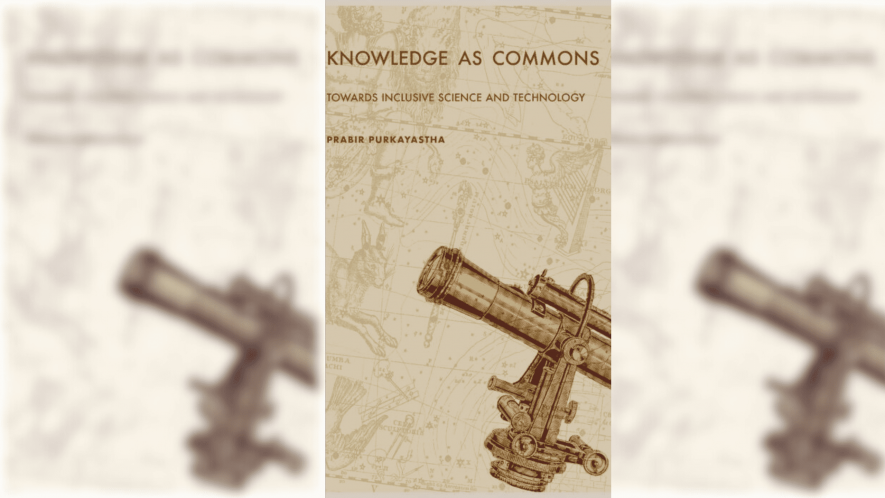
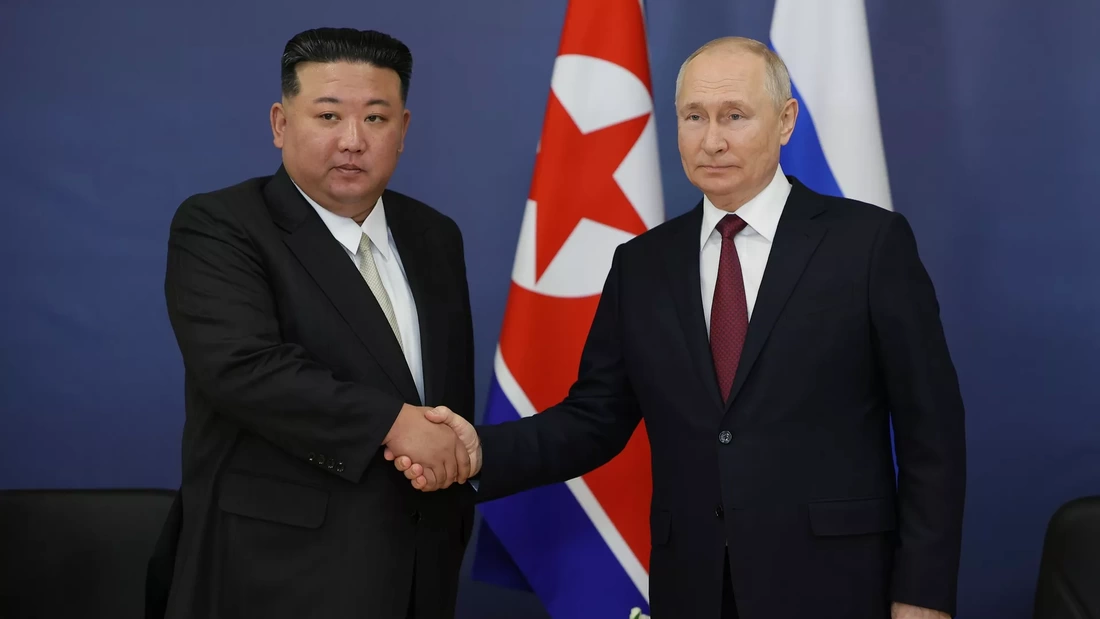
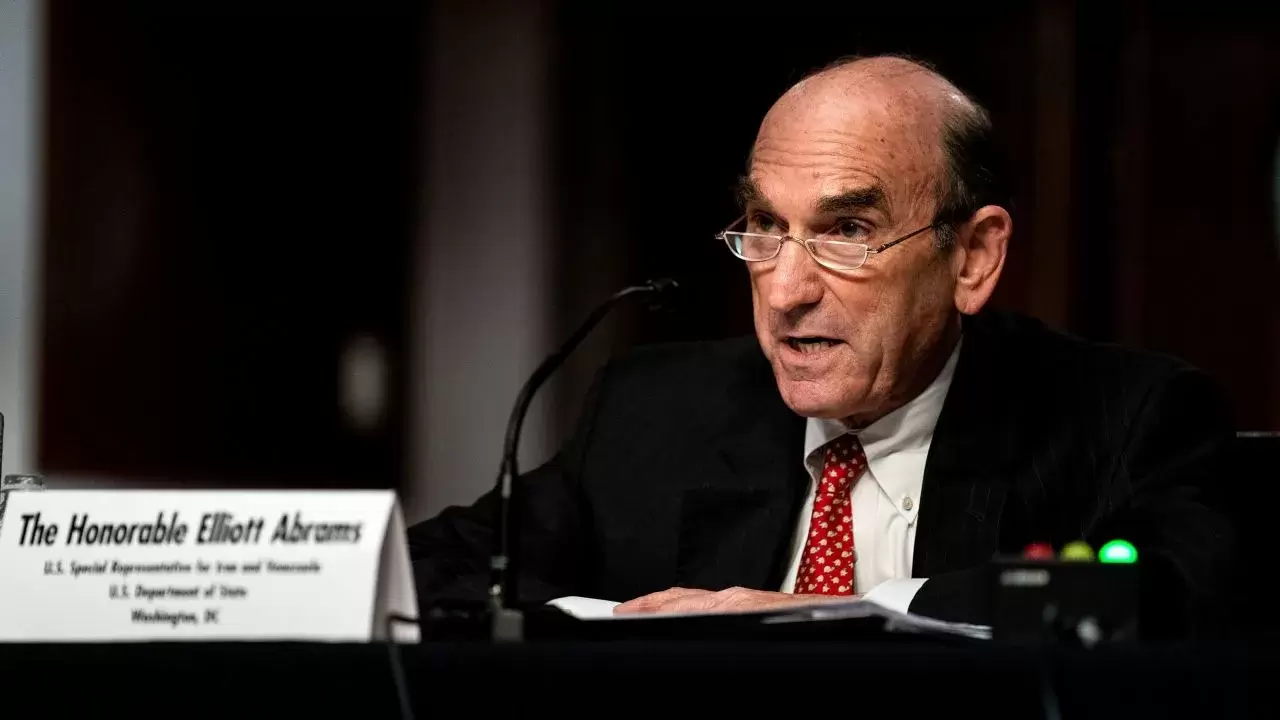
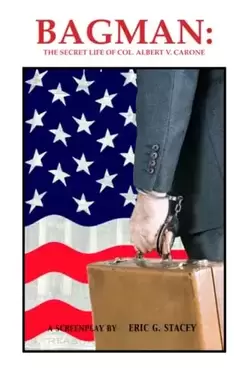
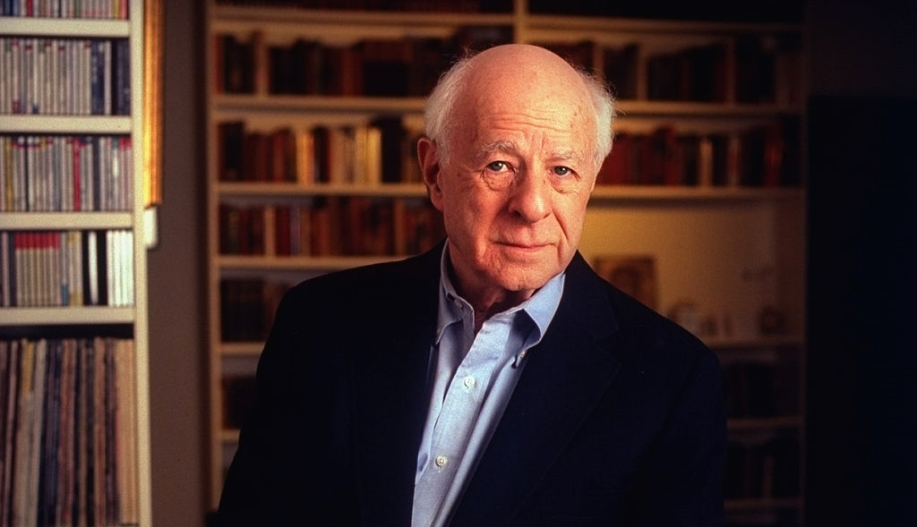
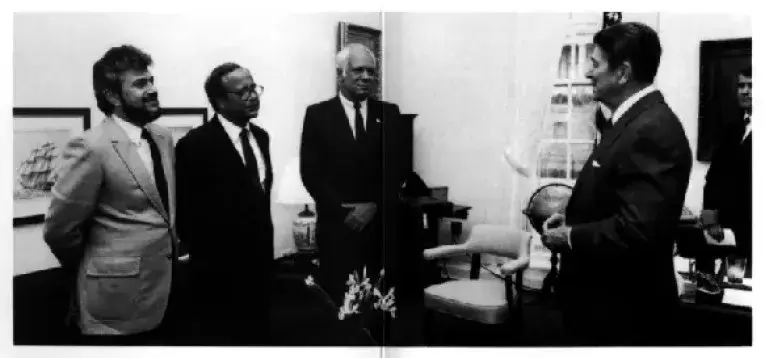
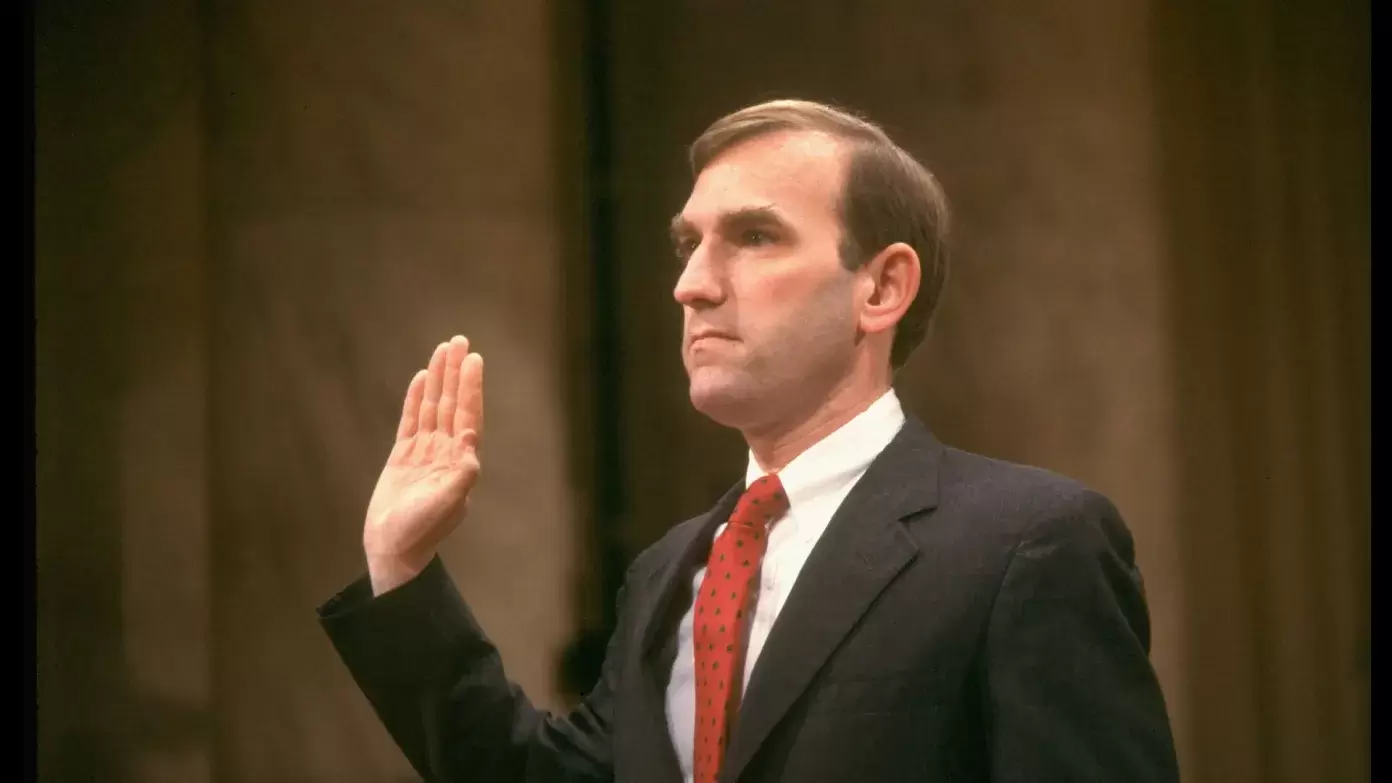
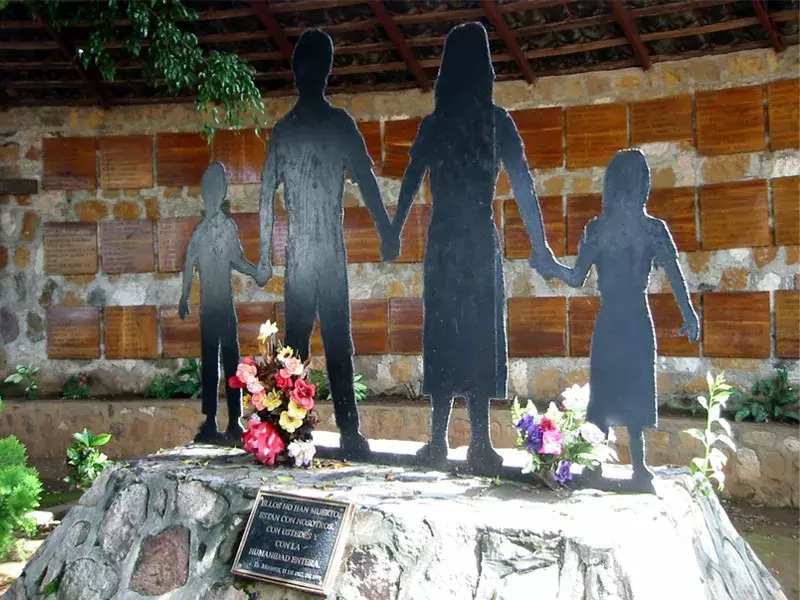

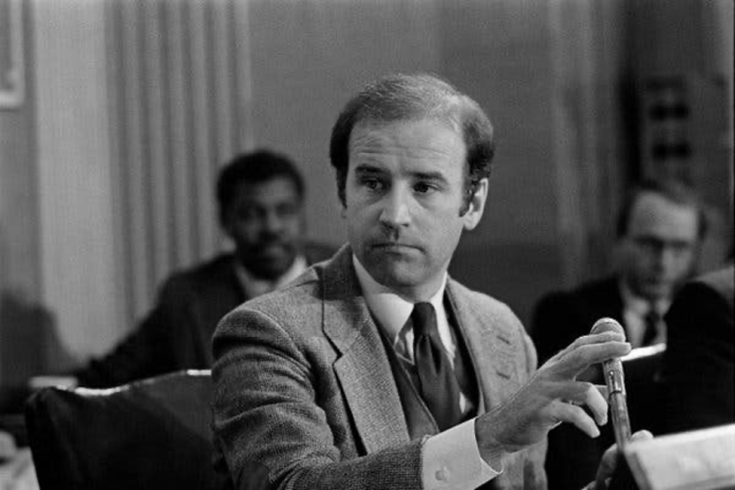

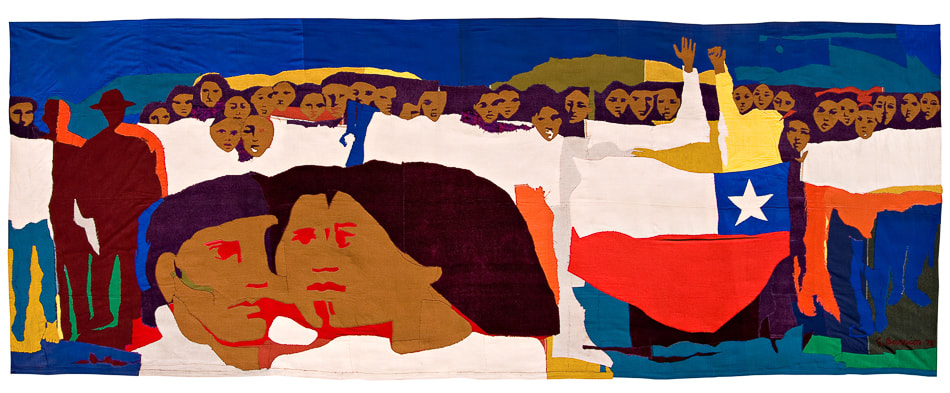
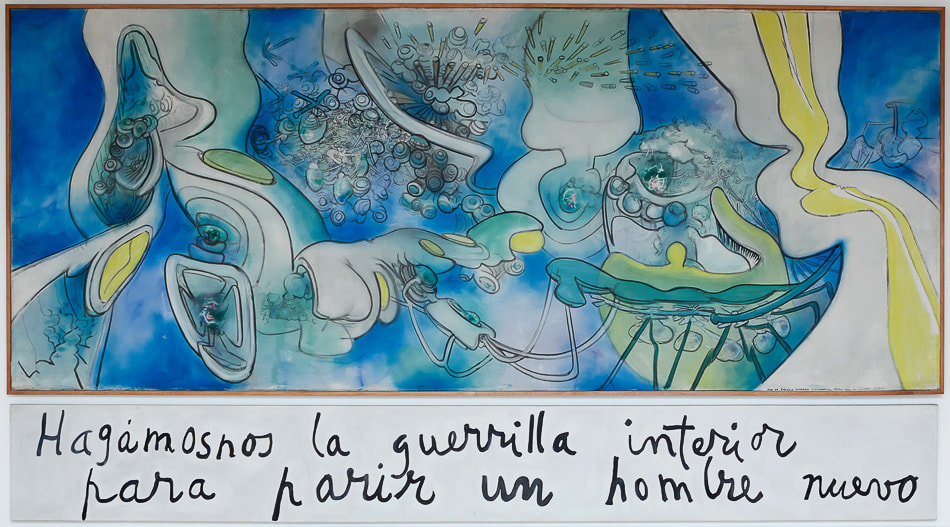
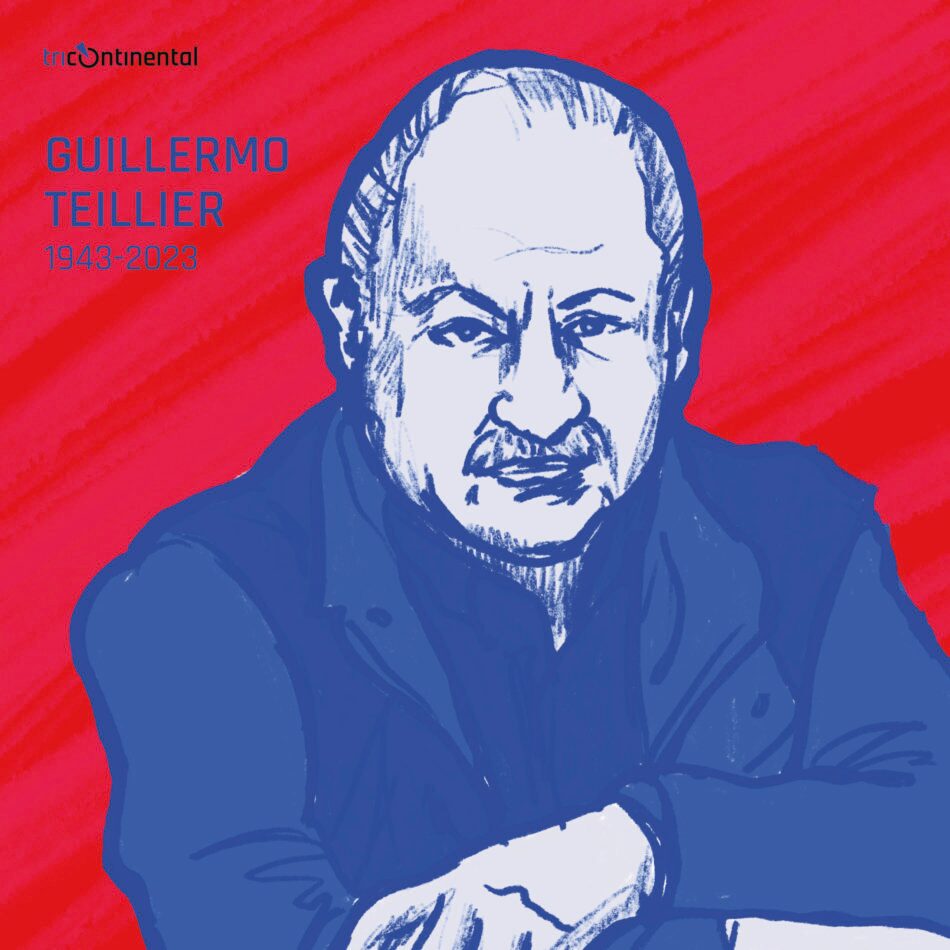
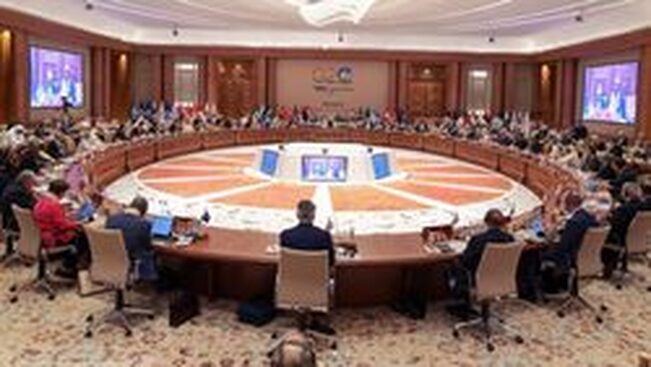
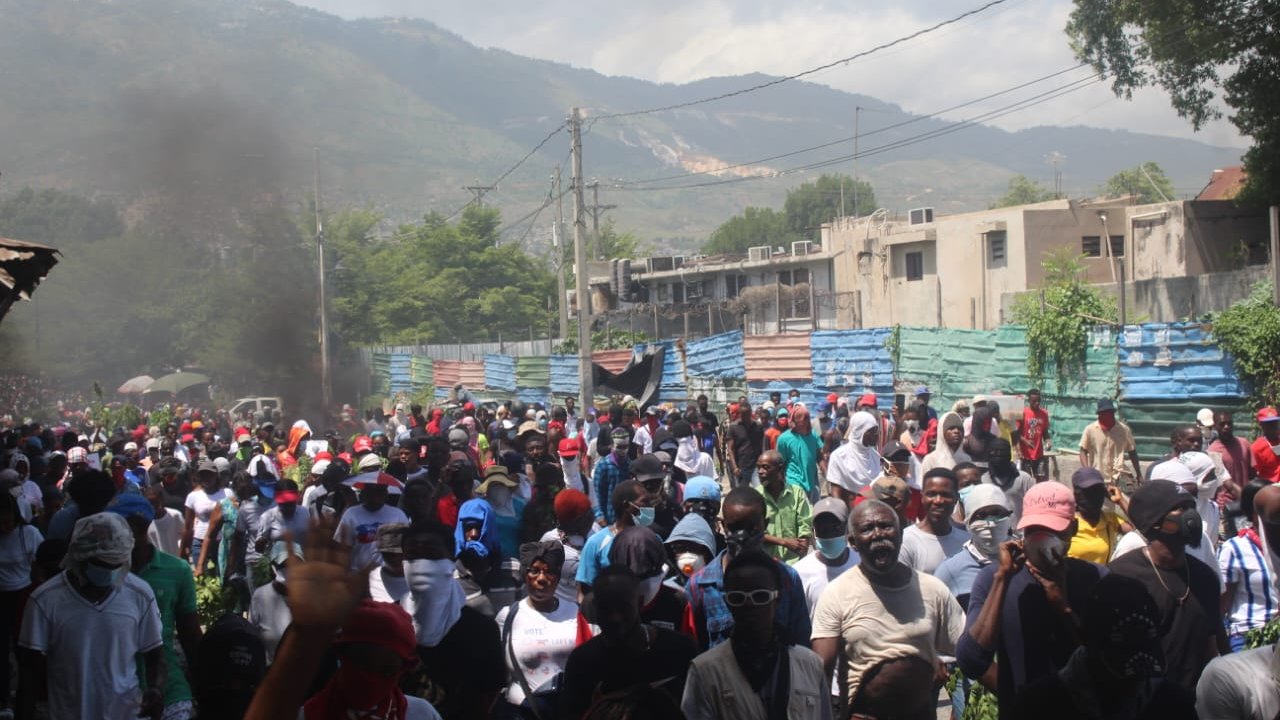
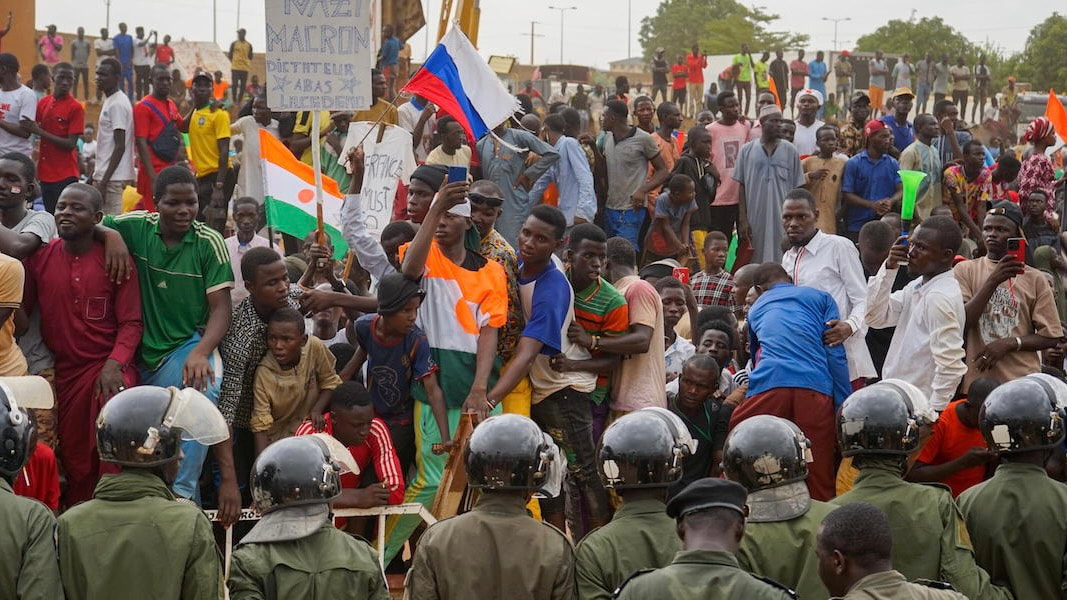
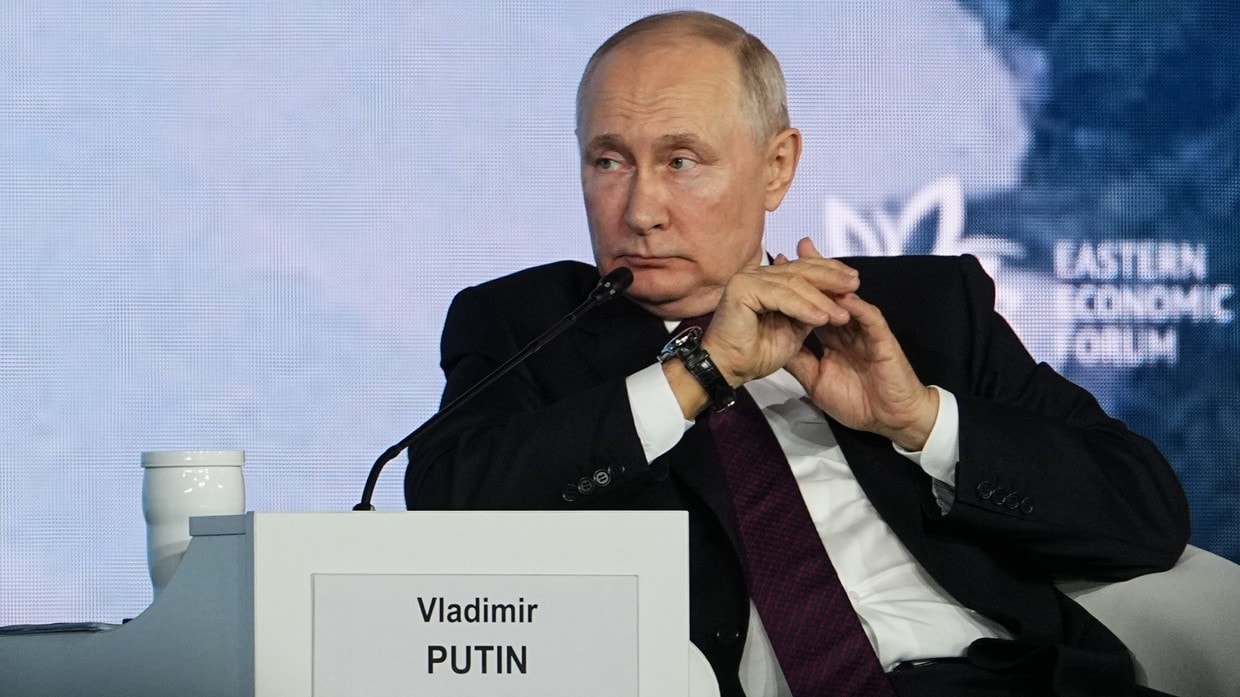
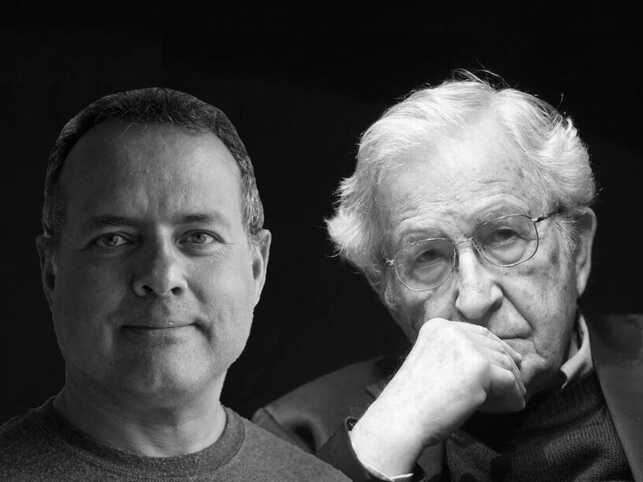
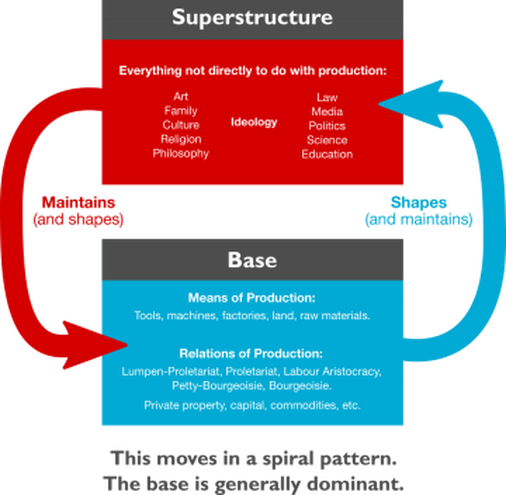
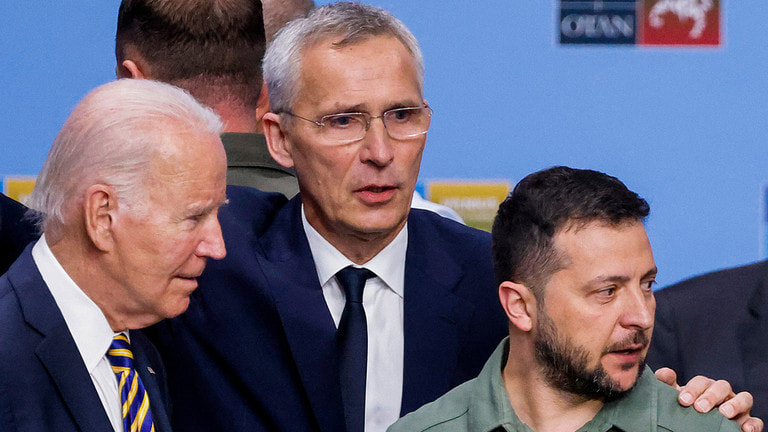
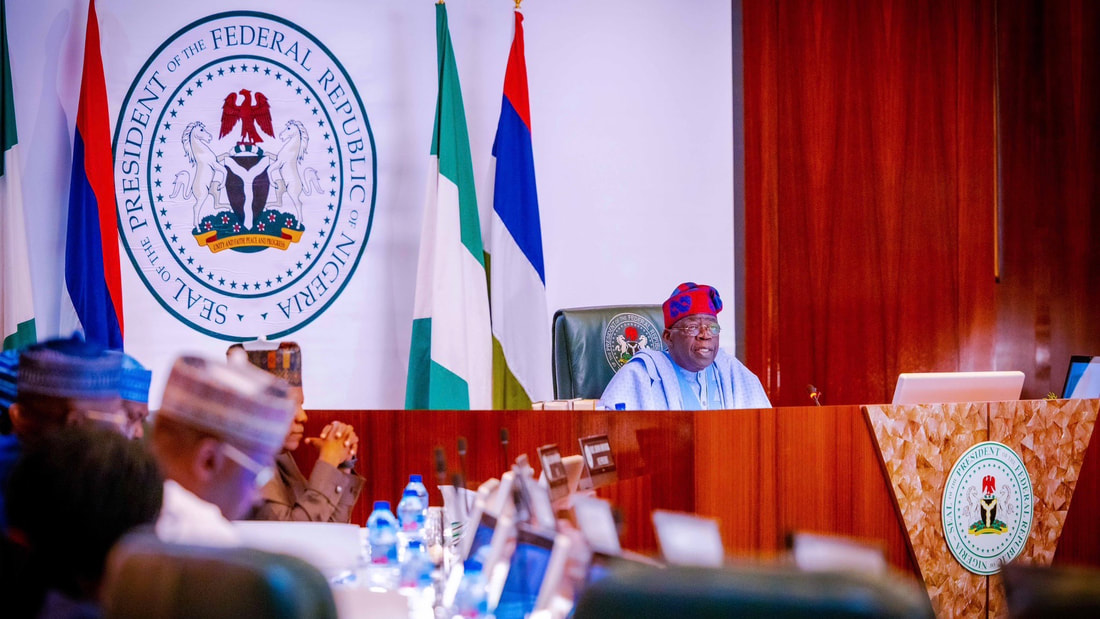

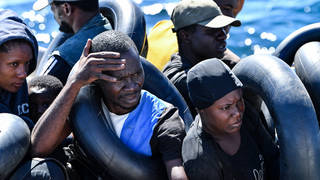
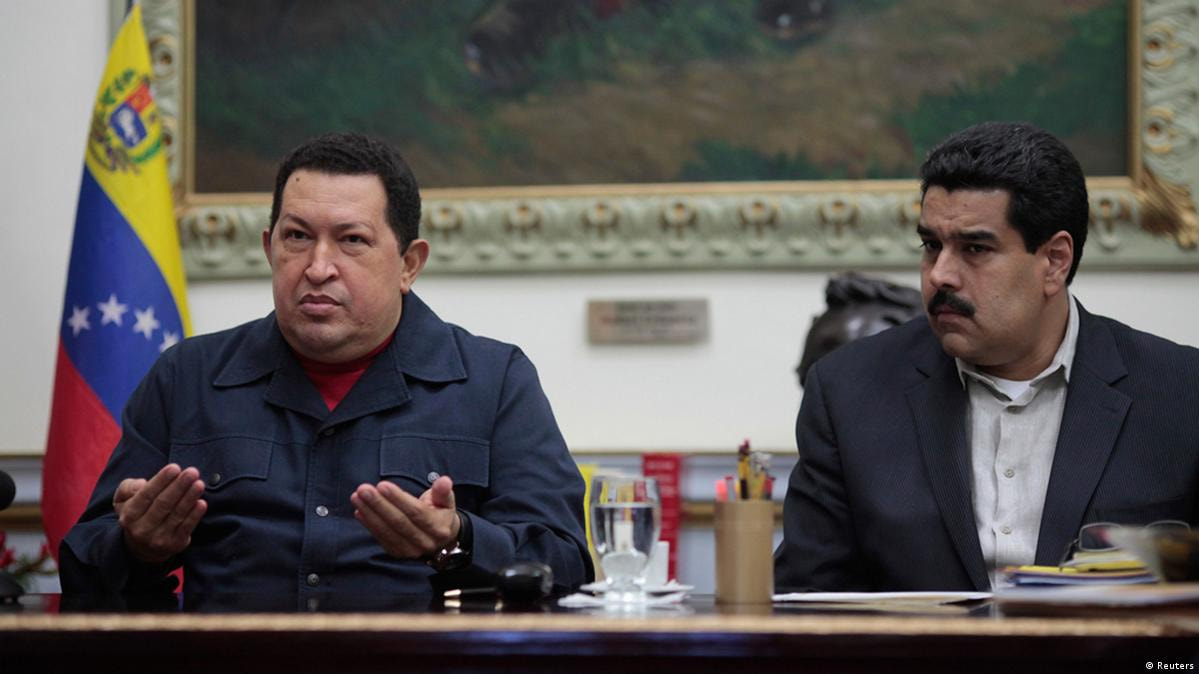
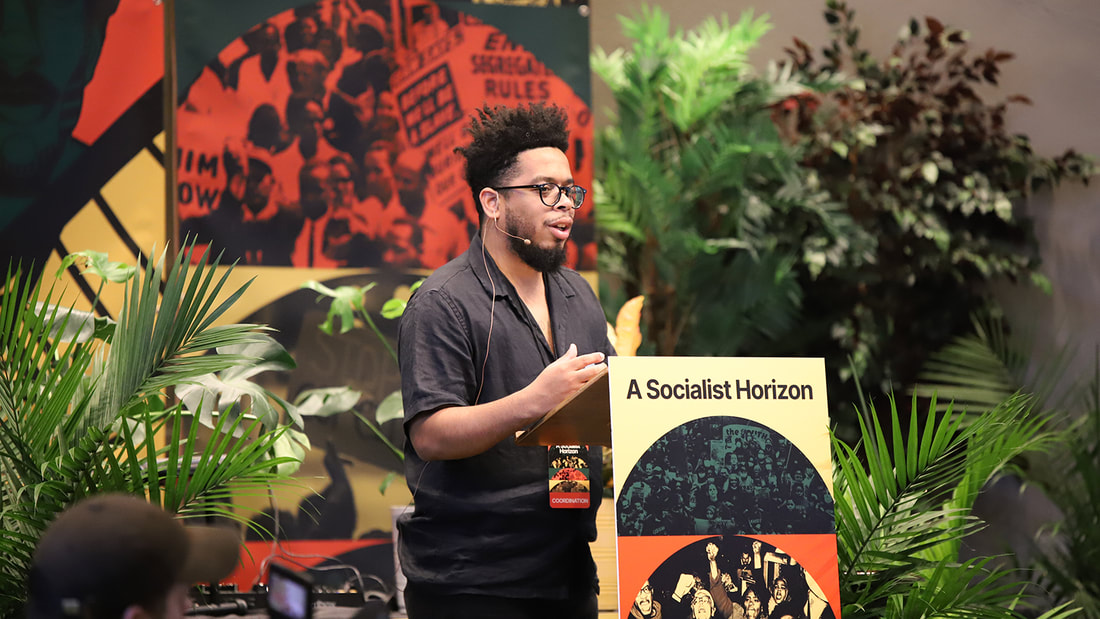
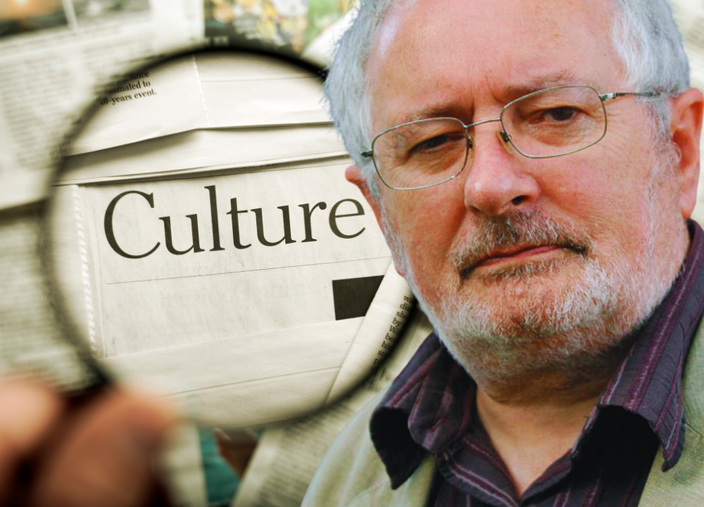
 RSS Feed
RSS Feed